The History Book Club discussion

This topic is about
The Splendid and the Vile
BUDDY-READS
>
ARCHIVE - BUDDY READ - THE SPLENDID AND THE VILE: A SAGA OF CHURCHILL, FAMILY, AND DEFIANCE DURING THE BLITZ - DISCUSSION THREAD (No Spoilers, please)
message 302:
by
Bentley, Group Founder, Leader, Chief
(last edited Sep 03, 2020 01:40PM)
(new)
-
rated it 4 stars
I agree Vincent. True about Hawaii - but Pearl Harbor was still tragic and devastating.
There is also no doubt that Europe suffered tremendously - including France and Britain as Churchill attests.
There is also no doubt that Europe suffered tremendously - including France and Britain as Churchill attests.
This is this week's assignment:
Week Fifteen- August 31st - September 6th
(pages 203 - 217)
Chapter 42: Ominous Doings - page 203
Chapter 43: Cap Blanc-Nez - page 205
Part Four: Blood and Dust - page 207
Chapter 44: On a Quiet Blue Day - page 209
Week Fifteen- August 31st - September 6th
(pages 203 - 217)
Chapter 42: Ominous Doings - page 203
Chapter 43: Cap Blanc-Nez - page 205
Part Four: Blood and Dust - page 207
Chapter 44: On a Quiet Blue Day - page 209
message 304:
by
Bentley, Group Founder, Leader, Chief
(last edited Sep 04, 2020 07:24AM)
(new)
-
rated it 4 stars
Chapter Overviews and Summaries
Chapter 36 - Teatime
In this chapter, Lindemann's generosity is discussed and the importance of tea to the English people during the war. "Tea was comfort and history; above all, it was English. As long as there was tea, there was England." (page 185)
Chapter 37 - The Lost Bombers
A formation of German bombers lost their way and dropped bombs on parts on Central London. They were aiming for aircraft factories. This provided the moral justification for Churchill for an attack on Berlin itself.
Chapter 38 - Berlin
The RAF attack Berlin - and the Germans censor the reports of damage.
Chapter 36 - Teatime
In this chapter, Lindemann's generosity is discussed and the importance of tea to the English people during the war. "Tea was comfort and history; above all, it was English. As long as there was tea, there was England." (page 185)
Chapter 37 - The Lost Bombers
A formation of German bombers lost their way and dropped bombs on parts on Central London. They were aiming for aircraft factories. This provided the moral justification for Churchill for an attack on Berlin itself.
Chapter 38 - Berlin
The RAF attack Berlin - and the Germans censor the reports of damage.
 I won't spoil anything, but I will say this, it was impossible to stop after chapter 44! I had to move on, got past chapter 45, and made myself stop...
I won't spoil anything, but I will say this, it was impossible to stop after chapter 44! I had to move on, got past chapter 45, and made myself stop...
message 307:
by
Bentley, Group Founder, Leader, Chief
(last edited Sep 03, 2020 08:48PM)
(new)
-
rated it 4 stars
And so we begin:
Chapter 36
Teatime
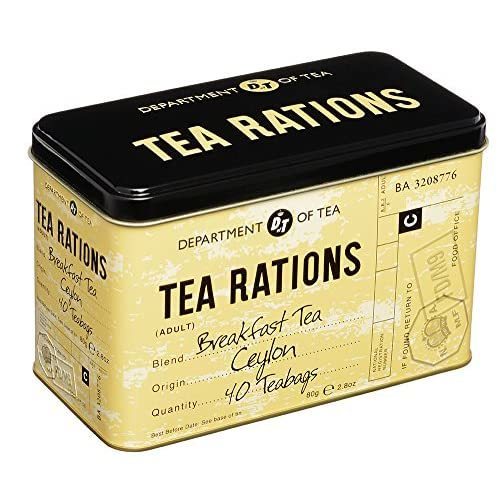
BUT FIRST CAME TEA, TO which the Prof now turned his attention. His enemies made him out to be a statistical incubus who lived a life stripped clean of warmth and compassion.
In fact, he often did kind things for employees and strangers, preferring to keep his role in such deeds secret. In one case, he paid the medical bills of a young female employee of his laboratory who suffered a fractured skull when, under blackout conditions, she rode her bicycle into a hole on her way to work.
Upon hearing that an elderly former nurse had fallen “upon evil days,” as a charitable organization put it, he established a pension for the woman. He was especially generous with his valet, Harvey. On one occasion Lindemann gave him a motorcycle, but then, worried that Harvey would get hurt in an accident, he provided a car to use instead.
In this case, Lindemann’s intercession did not succeed, despite his direct connection to Churchill. The tea ration, eventually raised to three ounces a week, would remain in effect until 1952. In the meantime, people dried their used tea leaves so they could steep them again. (page 185)
Sources: Larson, Erik. The Splendid and the Vile (p. 186). Crown. Kindle Edition, Bonanza, Teabox
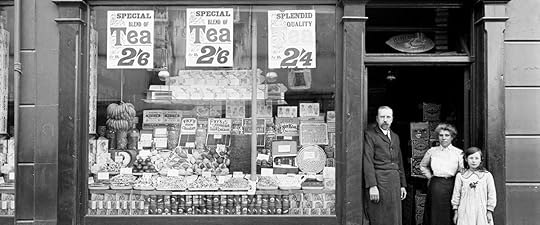
Discussion Topics and Questions:
1. What were your impressions of the Prof after reading this chapter? Did your opinion of him change in any way. If so, how?
2. What were your thoughts about the sacrifices and the rationing that Britain had to face? Do you think that Americans could face the same shortages and sacrifices if it was necessary?
3. Were previous generations actually the greatest generations that we have seen in terms of human qualities and selflessness? Why do you suppose that in these circumstances - Lindemann did not have the same influence with Churchill?
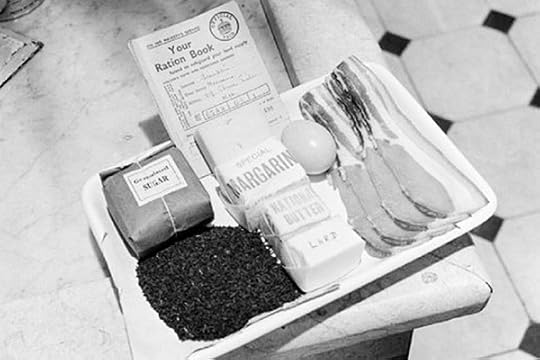
Britain, 1942. Tray containing the weekly adult ration: butter, lard, eggs, bacon, cheese, sugar and tea - (public domain)
Can you imagine that the above was a week's worth of food rations for one adult?
Chapter 36
Teatime

BUT FIRST CAME TEA, TO which the Prof now turned his attention. His enemies made him out to be a statistical incubus who lived a life stripped clean of warmth and compassion.
In fact, he often did kind things for employees and strangers, preferring to keep his role in such deeds secret. In one case, he paid the medical bills of a young female employee of his laboratory who suffered a fractured skull when, under blackout conditions, she rode her bicycle into a hole on her way to work.
Upon hearing that an elderly former nurse had fallen “upon evil days,” as a charitable organization put it, he established a pension for the woman. He was especially generous with his valet, Harvey. On one occasion Lindemann gave him a motorcycle, but then, worried that Harvey would get hurt in an accident, he provided a car to use instead.
In this case, Lindemann’s intercession did not succeed, despite his direct connection to Churchill. The tea ration, eventually raised to three ounces a week, would remain in effect until 1952. In the meantime, people dried their used tea leaves so they could steep them again. (page 185)
Sources: Larson, Erik. The Splendid and the Vile (p. 186). Crown. Kindle Edition, Bonanza, Teabox

Discussion Topics and Questions:
1. What were your impressions of the Prof after reading this chapter? Did your opinion of him change in any way. If so, how?
2. What were your thoughts about the sacrifices and the rationing that Britain had to face? Do you think that Americans could face the same shortages and sacrifices if it was necessary?
3. Were previous generations actually the greatest generations that we have seen in terms of human qualities and selflessness? Why do you suppose that in these circumstances - Lindemann did not have the same influence with Churchill?

Britain, 1942. Tray containing the weekly adult ration: butter, lard, eggs, bacon, cheese, sugar and tea - (public domain)
Can you imagine that the above was a week's worth of food rations for one adult?
message 308:
by
Bentley, Group Founder, Leader, Chief
(last edited Sep 03, 2020 07:13PM)
(new)
-
rated it 4 stars
ALL ABOUT TEA, LATEST
THE YEAR BRITAIN BOUGHT UP ALL THE TEA IN THE WORLD
Published on June 23, 2016
by Teabox
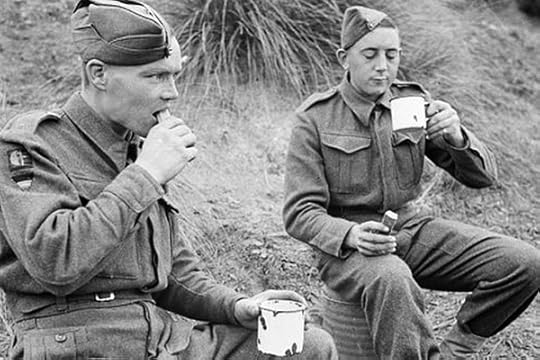
Italy, 1943. The Salvation Army van brings tea and cake for British soldiers - Teabox
No one example captures how deeply tea drinking was embedded in the fabric of British everyday life than the decision of the government in 1942 to buy up every available pound of tea from every country in the world except Japan.
Britain faced defeat by the Axis powers of Germany and Japan. Its troops had been forced to make a complete withdrawal from Europe, leaving it open to an expected and narrowly avoided invasion.
The “impregnable” fortress of Singapore had fallen, essentially ending Britain’s colonial dominance of Asia. Britain was close to broke, as its reserves were drained to keep imports flowing in as Atlantic convoys were hunted and often destroyed by U-boats. The US had not yet mobilized its massive manufacturing capabilities, post Pearl Harbor.
And Britain was buying tea!
In huge amounts. One estimate is that the largest government purchases in 1942 were, in order of weight, bullets, tea, artillery shells, bombs and explosives.
The German High Command fully understood the importance of disrupting the tea chain. One of the primary targets for the sustained bombing of London in 1941, known as the Blitz, was Mincing Lane, “The Street of Tea.”
This had been the center for the disgraceful opium trade that pumped masses of the drug into China to obtain the silver that was the only currency the Chinese government would accept for purchase of tea: feeding an addiction to fund an addiction.
Mincing Lane did not store tea but was the repository for just about all the records of 30 million tonnes of stocks, trades and finances destroyed by the bombing.
That is when the government moved into action. Almost all foods and clothing items were rationed; this lasted until 1952, seven years after the war had ended.
The weekly allowance was two ounces of butter and cheese, eight of sugar, four of bacon. And two ounces of tea, enough to make three cups a day, a far less stringent ration than cheese, for instance.
A Teakettle in a Tank
Tea was a key factor in weaponry, too. In WW I, the “Tommies” were known to fire off their machine guns in a nonstop stream of bullets to get the barrels hot enough to immerse in water to get that hot enough for tea.
The Germans noticed this, of course, just as they did the easy target made by tank crews leaving the safety of their vehicles for a brew-up. (Typically, they made an improvised “Benghazi burner” from empty fuel cans.)
The solution was to incorporate a BV (Boiling Vessel) inside the turret. Yes, that is indeed a Teakettle in a Tank.
It has been a required feature in all UK (and Indian) army AFVs (Armored Fighting Vehicles) for the past seventy years. The latest is designated as “FV706656.” It is still standard practice for a junior member of a vehicle crew to be unofficially appointed “BV Commander” with the duty to make hot drinks for the crew.
The decision to upgrade the Challenger in 2014 maintained the BV requirement. This is one of the most successful tanks in military history, the best protected and with lowest battle losses. It served in combat in the Balkan, Iraq and Afghanistan – with the BV in daily use.
This all sounds like the spirit of Monty Python and British fuddy-duddy, but it made strategic sense. Tea was a social necessity, especially for the working class. And it was important to the war effort. The Army at rest was groups of soldiers around a metal tea bucket of, typically, six gallons. That applied to all ranks in all units.
“Gunfire”
Tea played a critical role in the British Army, with many historians attributing at least part of its success in the almost never-ending military campaigns, many of them small colonial policing actions. One of the keys that distinguished it from every other European fighting force was that its embedding or tea in its routines greatly reduced the reliance on alcohol to calm troops as they prepared for battle, relax them at its end and keep them sober and alert while they sat around waiting. One of the slang terms soldiers used for their morning tea was “Gunfire.”
The tea itself was not quite gourmet. It was very strong, all from Assam, Ceylon and Africa. China and Japan were not sourcing options; by the end of the war, China’s exports that once comprised almost all the global market were close to zero. Japan had been the leading supplier to the US but obviously was no longer a preferred supplier.
Army tea came as part of the soldier’s composite rations kit. Compo tea was in a tin, with milk and sugar pre-added. The food components of compo are best summarized as somewhat strange, with no further comment. The tea was basic and bulk shipped. There were constant rumors that bromide had been added to it, to reduce young males’ erotic interests; that gives a sense of what it tasted like. Soldiers reported that when hot it was welcome and pleasant but the surface took on the appearance of an unskimmed pool when it was lukewarm.
Napoleon famously said that an army marches on its stomach. His own military needed to transport loads of heavy wine. They also had to forage for food, a euphemism for looting. Tea had the advantage of being light and portable. It contained important nutritional minerals. Sweetened by sugar, it was heartening and provided an energy boost. Caffeine combined both a pick me up and calm me down effect.
One of the central reasons for the explosive growth in tea consumption in the UK in the 1700s was that water was such a danger that it had to be avoided.
Figures show a strong correlation among the general population between tea and reduction in dysentery and bacterial infections. It also reduced infant mortality, since the antiseptic properties of tea were passed on to breast milk.
War in Assam: the Kohima turning point
There was a hidden price for the morale-boosting benefits of tea in World War II. It was mostly paid, somewhat ironically, by the workers of the tea gardens in Assam and ordinary Indians.
Production in Assam and Ceylon was boosted to meet the needs of Britain, with heavy reliance on US merchant ships. India’s political organizations were split on the issue of supporting the military effort, with nationalist strongly opposed.
However, the population of Assam was pulled into the conflict once Rangoon, the capital of Burma, surrendered to the Japanese. (Now Yangon, Myanmar). Throughout 1942, it was expected that Japanese troops would invade Northern India via the only two narrow passes through the Himalayas. Tea workers were conscripted to carve a supply path. Thousands died.
The Indian Army of 2.5 million was the largest volunteer force in history. Assam was also the base for the most dangerous air route in the world: the Hump that transported US supplies to China’s army fighting the Japanese. It was also central to the large Burma war theater and the site of the Battle of Kohima, which marked a crucial turning point.
The complex and protected Kohima-Imphal campaign led to the annihilation of the Japanese forces and reconquest of Burma; half its hundred thousand troops were casualties and it lost every single tank and artillery gun. The nature of the terrain is indicated by the deaths of 17,000 mules and ponies.
One regrettable aspect of writing on the history of “English tea in India is that it very much tends to showcase the English and overlook the Indian.
”The simple act of being able to share a mug of tea”
Tea branding and marketing has always played up the peaceful side of its history and social context: medicine and health, spirituality and contemplation, and refinement and snobbery. These are real but a whole book or two can be written about its martial dynamics.
Tea and war have always gone together. The origins of its trade routes and its becoming a de facto currency for a thousand years comes from the urgent needs of the Chinese army to obtain horses from the tribes of Nepal and Tibet.
In turn, they sought out tea for its immense value as a beverage that could help nourish them in their harsh climate, rather like Bolivian Indians chewing coca to suppress hunger pangs and give them extra energy in the high mountains.
A quote from an article in the UK Daily Tea in 2014 captures this dual nature of tea. It’s from a soldier reminiscing about his service in the early 2000s: “When you’re wet, cold and miserable, and feel that you need to curl up and die from tiredness,… you may be covered in mud, stinking from not being able to shower for days or weeks, cold and tired, but a brew seems to take all that away. The jokes will start and morale gets better. The simple act of being able to share a mug of tea with your mates, who look and feel just as bad as you do, is awesome.”
1942 was a pivotal year in history. Britain survived. Tea helped.
Source: Teabox
THE YEAR BRITAIN BOUGHT UP ALL THE TEA IN THE WORLD
Published on June 23, 2016
by Teabox

Italy, 1943. The Salvation Army van brings tea and cake for British soldiers - Teabox
No one example captures how deeply tea drinking was embedded in the fabric of British everyday life than the decision of the government in 1942 to buy up every available pound of tea from every country in the world except Japan.
Britain faced defeat by the Axis powers of Germany and Japan. Its troops had been forced to make a complete withdrawal from Europe, leaving it open to an expected and narrowly avoided invasion.
The “impregnable” fortress of Singapore had fallen, essentially ending Britain’s colonial dominance of Asia. Britain was close to broke, as its reserves were drained to keep imports flowing in as Atlantic convoys were hunted and often destroyed by U-boats. The US had not yet mobilized its massive manufacturing capabilities, post Pearl Harbor.
And Britain was buying tea!
In huge amounts. One estimate is that the largest government purchases in 1942 were, in order of weight, bullets, tea, artillery shells, bombs and explosives.
The German High Command fully understood the importance of disrupting the tea chain. One of the primary targets for the sustained bombing of London in 1941, known as the Blitz, was Mincing Lane, “The Street of Tea.”
This had been the center for the disgraceful opium trade that pumped masses of the drug into China to obtain the silver that was the only currency the Chinese government would accept for purchase of tea: feeding an addiction to fund an addiction.
Mincing Lane did not store tea but was the repository for just about all the records of 30 million tonnes of stocks, trades and finances destroyed by the bombing.
That is when the government moved into action. Almost all foods and clothing items were rationed; this lasted until 1952, seven years after the war had ended.
The weekly allowance was two ounces of butter and cheese, eight of sugar, four of bacon. And two ounces of tea, enough to make three cups a day, a far less stringent ration than cheese, for instance.
A Teakettle in a Tank
Tea was a key factor in weaponry, too. In WW I, the “Tommies” were known to fire off their machine guns in a nonstop stream of bullets to get the barrels hot enough to immerse in water to get that hot enough for tea.
The Germans noticed this, of course, just as they did the easy target made by tank crews leaving the safety of their vehicles for a brew-up. (Typically, they made an improvised “Benghazi burner” from empty fuel cans.)
The solution was to incorporate a BV (Boiling Vessel) inside the turret. Yes, that is indeed a Teakettle in a Tank.
It has been a required feature in all UK (and Indian) army AFVs (Armored Fighting Vehicles) for the past seventy years. The latest is designated as “FV706656.” It is still standard practice for a junior member of a vehicle crew to be unofficially appointed “BV Commander” with the duty to make hot drinks for the crew.
The decision to upgrade the Challenger in 2014 maintained the BV requirement. This is one of the most successful tanks in military history, the best protected and with lowest battle losses. It served in combat in the Balkan, Iraq and Afghanistan – with the BV in daily use.
This all sounds like the spirit of Monty Python and British fuddy-duddy, but it made strategic sense. Tea was a social necessity, especially for the working class. And it was important to the war effort. The Army at rest was groups of soldiers around a metal tea bucket of, typically, six gallons. That applied to all ranks in all units.
“Gunfire”
Tea played a critical role in the British Army, with many historians attributing at least part of its success in the almost never-ending military campaigns, many of them small colonial policing actions. One of the keys that distinguished it from every other European fighting force was that its embedding or tea in its routines greatly reduced the reliance on alcohol to calm troops as they prepared for battle, relax them at its end and keep them sober and alert while they sat around waiting. One of the slang terms soldiers used for their morning tea was “Gunfire.”
The tea itself was not quite gourmet. It was very strong, all from Assam, Ceylon and Africa. China and Japan were not sourcing options; by the end of the war, China’s exports that once comprised almost all the global market were close to zero. Japan had been the leading supplier to the US but obviously was no longer a preferred supplier.
Army tea came as part of the soldier’s composite rations kit. Compo tea was in a tin, with milk and sugar pre-added. The food components of compo are best summarized as somewhat strange, with no further comment. The tea was basic and bulk shipped. There were constant rumors that bromide had been added to it, to reduce young males’ erotic interests; that gives a sense of what it tasted like. Soldiers reported that when hot it was welcome and pleasant but the surface took on the appearance of an unskimmed pool when it was lukewarm.
Napoleon famously said that an army marches on its stomach. His own military needed to transport loads of heavy wine. They also had to forage for food, a euphemism for looting. Tea had the advantage of being light and portable. It contained important nutritional minerals. Sweetened by sugar, it was heartening and provided an energy boost. Caffeine combined both a pick me up and calm me down effect.
One of the central reasons for the explosive growth in tea consumption in the UK in the 1700s was that water was such a danger that it had to be avoided.
Figures show a strong correlation among the general population between tea and reduction in dysentery and bacterial infections. It also reduced infant mortality, since the antiseptic properties of tea were passed on to breast milk.
War in Assam: the Kohima turning point
There was a hidden price for the morale-boosting benefits of tea in World War II. It was mostly paid, somewhat ironically, by the workers of the tea gardens in Assam and ordinary Indians.
Production in Assam and Ceylon was boosted to meet the needs of Britain, with heavy reliance on US merchant ships. India’s political organizations were split on the issue of supporting the military effort, with nationalist strongly opposed.
However, the population of Assam was pulled into the conflict once Rangoon, the capital of Burma, surrendered to the Japanese. (Now Yangon, Myanmar). Throughout 1942, it was expected that Japanese troops would invade Northern India via the only two narrow passes through the Himalayas. Tea workers were conscripted to carve a supply path. Thousands died.
The Indian Army of 2.5 million was the largest volunteer force in history. Assam was also the base for the most dangerous air route in the world: the Hump that transported US supplies to China’s army fighting the Japanese. It was also central to the large Burma war theater and the site of the Battle of Kohima, which marked a crucial turning point.
The complex and protected Kohima-Imphal campaign led to the annihilation of the Japanese forces and reconquest of Burma; half its hundred thousand troops were casualties and it lost every single tank and artillery gun. The nature of the terrain is indicated by the deaths of 17,000 mules and ponies.
One regrettable aspect of writing on the history of “English tea in India is that it very much tends to showcase the English and overlook the Indian.
”The simple act of being able to share a mug of tea”
Tea branding and marketing has always played up the peaceful side of its history and social context: medicine and health, spirituality and contemplation, and refinement and snobbery. These are real but a whole book or two can be written about its martial dynamics.
Tea and war have always gone together. The origins of its trade routes and its becoming a de facto currency for a thousand years comes from the urgent needs of the Chinese army to obtain horses from the tribes of Nepal and Tibet.
In turn, they sought out tea for its immense value as a beverage that could help nourish them in their harsh climate, rather like Bolivian Indians chewing coca to suppress hunger pangs and give them extra energy in the high mountains.
A quote from an article in the UK Daily Tea in 2014 captures this dual nature of tea. It’s from a soldier reminiscing about his service in the early 2000s: “When you’re wet, cold and miserable, and feel that you need to curl up and die from tiredness,… you may be covered in mud, stinking from not being able to shower for days or weeks, cold and tired, but a brew seems to take all that away. The jokes will start and morale gets better. The simple act of being able to share a mug of tea with your mates, who look and feel just as bad as you do, is awesome.”
1942 was a pivotal year in history. Britain survived. Tea helped.
Source: Teabox
message 309:
by
Bentley, Group Founder, Leader, Chief
(last edited Sep 03, 2020 08:15PM)
(new)
-
rated it 4 stars
Rationing in Britain

An American commentator looks at the effects of rationing on the people of England in 1944.
The film presents a 'typical' family of 4 (housewife, engine-driver husband, factory-working daughter, schoolboy son) to illustrate the basic rationing system, the workings of 'point' systems and other restrictions, and the difficulties the average family faced when eating 'on the ration'.
Link to video: https://youtu.be/o9wNJ78S2GY
Sources: Imperial War Museum, Youtube, Inrange TV
More:
Mrs. T and her Cabbage Patch (1941) - (cute children)
Link to Video: https://youtu.be/C9xLQBUi6Ic
Synopsis: Poetic tribute to Mrs Turner's vegetable growing prowess, plus the delights of "wartime steaks".
British Ration Week Episode 1: Introduction
Synopsis: Did you know that under World War II rationing, the health of the British public improved by virtually every objective measure? Caloric intake increased, lifespan increased, and infant mortality decreased.
Despite being an island nation under severe submarine blockade, the United Kingdom managed to not just provide food for its millions of inhabitants, but actually build and maintain the public trust in government rationing.
How did this happen? We will explore the question all week, while Ian eats a diet of only what a typical British family would have eaten during the dark days of the Blitz.
Day 1 Menu:
Breakfast: Oatmeal Porridge, tea
Lunch: Leek & Potato Soup, bread & margarine, water
Tea: Vanilla Depression Cake, tea
Dinner: Cottage Pie, ale
Link to Episode 1 - https://youtu.be/5993lPFEwaE

An American commentator looks at the effects of rationing on the people of England in 1944.
The film presents a 'typical' family of 4 (housewife, engine-driver husband, factory-working daughter, schoolboy son) to illustrate the basic rationing system, the workings of 'point' systems and other restrictions, and the difficulties the average family faced when eating 'on the ration'.
Link to video: https://youtu.be/o9wNJ78S2GY
Sources: Imperial War Museum, Youtube, Inrange TV
More:
Mrs. T and her Cabbage Patch (1941) - (cute children)
Link to Video: https://youtu.be/C9xLQBUi6Ic
Synopsis: Poetic tribute to Mrs Turner's vegetable growing prowess, plus the delights of "wartime steaks".
British Ration Week Episode 1: Introduction
Synopsis: Did you know that under World War II rationing, the health of the British public improved by virtually every objective measure? Caloric intake increased, lifespan increased, and infant mortality decreased.
Despite being an island nation under severe submarine blockade, the United Kingdom managed to not just provide food for its millions of inhabitants, but actually build and maintain the public trust in government rationing.
How did this happen? We will explore the question all week, while Ian eats a diet of only what a typical British family would have eaten during the dark days of the Blitz.
Day 1 Menu:
Breakfast: Oatmeal Porridge, tea
Lunch: Leek & Potato Soup, bread & margarine, water
Tea: Vanilla Depression Cake, tea
Dinner: Cottage Pie, ale
Link to Episode 1 - https://youtu.be/5993lPFEwaE
message 310:
by
Bentley, Group Founder, Leader, Chief
(last edited Sep 03, 2020 08:43PM)
(new)
-
rated it 4 stars
Lord Woolton - Minister of Food
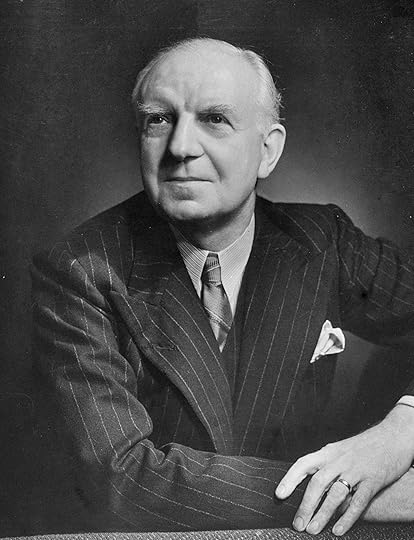
Frederick James Marquis, 1st Earl of Woolton - Yousuf Karsh - Dutch National Archives, The Hague, Fotocollectie Algemeen Nederlands Persbureau (ANEFO), 1945-1989 bekijk toegang 2.24.01.04 Bestanddeelnummer 902-2057
Frederick James Marquis, 1st Earl of Woolton, CH, PC (23 August 1883 – 14 December 1964) was an English businessman and statesman.
In April 1940, he was appointed Minister of Food, and established the rationing system, generally regarded as a success.
He maintained food imports from America, kept prices down and organised a programme of free school meals. With a shortage of meat, fish and dairy products, his recommended dish was the vegetarian Woolton pie, for which he would always be remembered.
In 1943, Woolton was appointed Minister of Reconstruction, planning for post-war Britain, and became Conservative Party chairman from 1946 to 1955. He was given credit for the Conservative victory in 1951.
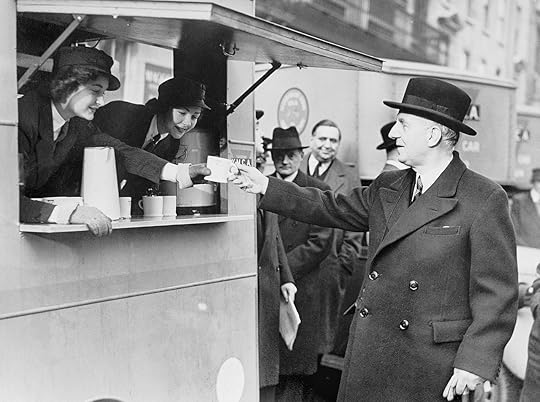
The British Minister for Food between April 1940 and 11 November 1943, Lord Woolton, receiving a cup of tea from a mobile canteen.
This is photograph HU 48187 from the collections of the Imperial War Museums - British Political Personalities 1936-1945 The Minister for Food between April 1940 and 11 November 1943, Lord Woolton, receiving a cup of tea from a mobile canteen (public domain)
More:
https://en.wikipedia.org/wiki/Woolton...

Woolton Pie
INTERVIEW WITH LORD WOOLTON - SOUND
Link: https://youtu.be/4i6GdWYxEXI
Synopsis: Seated at desk. Speaks about not wasting fruit. Phone rings: he buys large amount of fruit over 'phone. ROUGH SPEECH....You have just seen around the fruit centre....As minister of food I appeal to everyone with surplus fruit and vegetables to seek out these centres and to use them....etc., etc., THERE ARE NO SHOTS OF THE CENTRE... NEXT SECTION: WOOLTON PICKS UP TELEPHONE AND SAY'S. HELLO..MINISTER OF FOOD SPEAKING....HOW MUCH.... WHAT PRICE....ALLRIGHT.....WE WILL BUY A HUNDRED MILLION BUSHELS..DO YOU AGREE... GOOD.....THATS SETTLED THEN....SEATED AT DESK WRITING.....
Sources: Wikipedia, Dutch Archives, Wikimedia, British Movietone, Youtube

Frederick James Marquis, 1st Earl of Woolton - Yousuf Karsh - Dutch National Archives, The Hague, Fotocollectie Algemeen Nederlands Persbureau (ANEFO), 1945-1989 bekijk toegang 2.24.01.04 Bestanddeelnummer 902-2057
Frederick James Marquis, 1st Earl of Woolton, CH, PC (23 August 1883 – 14 December 1964) was an English businessman and statesman.
In April 1940, he was appointed Minister of Food, and established the rationing system, generally regarded as a success.
He maintained food imports from America, kept prices down and organised a programme of free school meals. With a shortage of meat, fish and dairy products, his recommended dish was the vegetarian Woolton pie, for which he would always be remembered.
In 1943, Woolton was appointed Minister of Reconstruction, planning for post-war Britain, and became Conservative Party chairman from 1946 to 1955. He was given credit for the Conservative victory in 1951.

The British Minister for Food between April 1940 and 11 November 1943, Lord Woolton, receiving a cup of tea from a mobile canteen.
This is photograph HU 48187 from the collections of the Imperial War Museums - British Political Personalities 1936-1945 The Minister for Food between April 1940 and 11 November 1943, Lord Woolton, receiving a cup of tea from a mobile canteen (public domain)
More:
https://en.wikipedia.org/wiki/Woolton...

Woolton Pie
INTERVIEW WITH LORD WOOLTON - SOUND
Link: https://youtu.be/4i6GdWYxEXI
Synopsis: Seated at desk. Speaks about not wasting fruit. Phone rings: he buys large amount of fruit over 'phone. ROUGH SPEECH....You have just seen around the fruit centre....As minister of food I appeal to everyone with surplus fruit and vegetables to seek out these centres and to use them....etc., etc., THERE ARE NO SHOTS OF THE CENTRE... NEXT SECTION: WOOLTON PICKS UP TELEPHONE AND SAY'S. HELLO..MINISTER OF FOOD SPEAKING....HOW MUCH.... WHAT PRICE....ALLRIGHT.....WE WILL BUY A HUNDRED MILLION BUSHELS..DO YOU AGREE... GOOD.....THATS SETTLED THEN....SEATED AT DESK WRITING.....
Sources: Wikipedia, Dutch Archives, Wikimedia, British Movietone, Youtube
message 311:
by
Bentley, Group Founder, Leader, Chief
(last edited Sep 03, 2020 10:29PM)
(new)
-
rated it 4 stars
And so we begin:
Chapter 37
The Lost Bombers
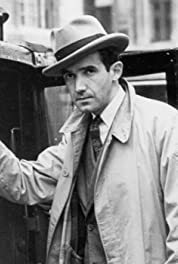
ON THE NIGHT OF SATURDAY, August 24, a formation of German bombers lost its way.
Their intended targets were aircraft factories and an oil depot east of London, London, over which the crews believed they were now flying. In fact, they were over London itself.
The RAF tracked the planes from the moment they left France but could do nothing to stop them. As yet, the British had no effective means for intercepting intruders after dark.
Although ground radar could direct a fighter to a bomber’s general location, it offered imprecise details about the plane’s altitude and whether it was just one bomber or one of a fleet of twenty.
About four minutes elapsed between the time a plane was first detected and when its coordinates were plotted by Fighter Command controllers, during which time the enemy aircraft would have moved well across the channel and to a different altitude. Pilots needed to see their targets in order to attack.
The RAF was struggling to modify aircraft for fighting at night and to equip them with experimental air-to-air radar; so far, however, these efforts had proven ineffective. (page 187)
Discussion Topics and Questions:
1. How do you suppose the German bombers got lost over London?
2. What were your thoughts about Edward R. Murrow's broadcasting from London? Was he brave or reckless and how did his broadcasting change war journalism forever?
3. How does the media, in any form, impact public understanding and/or will to action?
4. Why did Murrow become an icon and model for correspondents and journalists?
5. What are the positives and the negatives of following and trusting one individual as a source for news?
Sources: Larson, Erik. The Splendid and the Vile (p. 189). Crown. Kindle Edition, Youtube, CBS News, The Holocaust Memorial Museum, Library of Congress
More:
https://encyclopedia.ushmm.org/conten...
https://www.loc.gov/static/programs/n...
Good Night and Good Luck
Link: https://youtu.be/qpoD4LW771s
Good Night and Good Luck...The Story of Edward R. Murrow (1975)
Link to biography: https://youtu.be/s7Rqp0dCz4c
Chapter 37
The Lost Bombers

ON THE NIGHT OF SATURDAY, August 24, a formation of German bombers lost its way.
Their intended targets were aircraft factories and an oil depot east of London, London, over which the crews believed they were now flying. In fact, they were over London itself.
The RAF tracked the planes from the moment they left France but could do nothing to stop them. As yet, the British had no effective means for intercepting intruders after dark.
Although ground radar could direct a fighter to a bomber’s general location, it offered imprecise details about the plane’s altitude and whether it was just one bomber or one of a fleet of twenty.
About four minutes elapsed between the time a plane was first detected and when its coordinates were plotted by Fighter Command controllers, during which time the enemy aircraft would have moved well across the channel and to a different altitude. Pilots needed to see their targets in order to attack.
The RAF was struggling to modify aircraft for fighting at night and to equip them with experimental air-to-air radar; so far, however, these efforts had proven ineffective. (page 187)
Discussion Topics and Questions:
1. How do you suppose the German bombers got lost over London?
2. What were your thoughts about Edward R. Murrow's broadcasting from London? Was he brave or reckless and how did his broadcasting change war journalism forever?
3. How does the media, in any form, impact public understanding and/or will to action?
4. Why did Murrow become an icon and model for correspondents and journalists?
5. What are the positives and the negatives of following and trusting one individual as a source for news?
Sources: Larson, Erik. The Splendid and the Vile (p. 189). Crown. Kindle Edition, Youtube, CBS News, The Holocaust Memorial Museum, Library of Congress
More:
https://encyclopedia.ushmm.org/conten...
https://www.loc.gov/static/programs/n...
Good Night and Good Luck
Link: https://youtu.be/qpoD4LW771s
Good Night and Good Luck...The Story of Edward R. Murrow (1975)
Link to biography: https://youtu.be/s7Rqp0dCz4c
message 312:
by
Bentley, Group Founder, Leader, Chief
(last edited Sep 04, 2020 08:04AM)
(new)
-
rated it 4 stars
And so we begin:
CHAPTER 38
Berlin
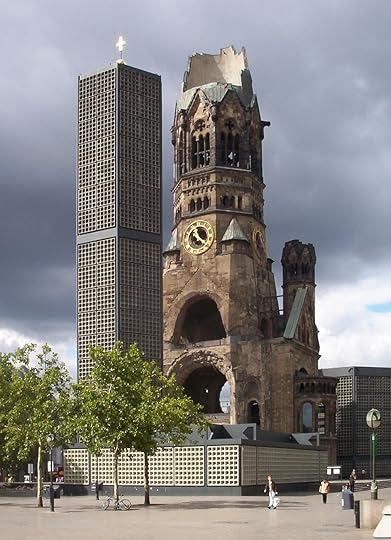
The Kaiser Wilhelm Memorial Church in Berlin-Charlottenburg - (public domain)
THE NEXT NIGHT, AT TWELVE-TWENTY A.M., Berliners were shocked to hear air-raid sirens go off throughout the city as British bombers droned overhead, a scenario their leaders had assured them was impossible.
Anti-aircraft guns tore the sky apart. “The Berliners are stunned,” correspondent Shirer wrote the next day. “They did not think it could happen. When this war began, Göring assured them it couldn’t.
He boasted that no enemy planes could ever break through the outer and inner rings of the capital’s anti-aircraft defense.
The Berliners are a naïve and simple people. They believed him.” (page 190)
Sources: Larson, Erik. The Splendid and the Vile (p. 190). Crown. Kindle Edition, History Net, Wikipedia, Wikimedia, War History Online
Discussion Topics and Questions:
1. Why would an intelligent population believe false propaganda and be taken in by Goebbels? Why do certain groups of people believe lies when the truth is staring them in the face?
2. How has social media today fueled the propaganda hackers and what can be done about it that has not already been done?
3. Would a propaganda minister like Goebbels be believed today?
4. How did the accidental attack on London which resulted in the initial bombing of Berlin change the course of the war for Britain?
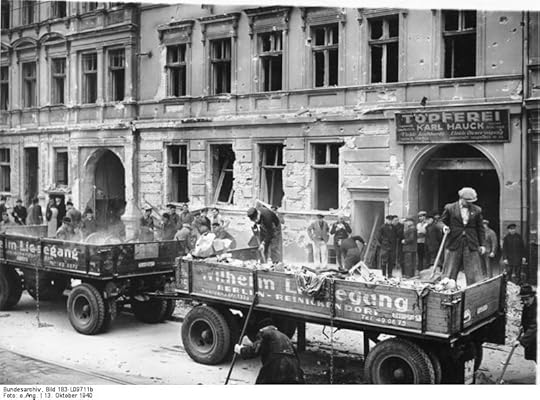
A work party clears rubble from an air raid on Berlin, 13 October 1940 - (public domain)
More:
https://en.wikipedia.org/wiki/Bombing...
https://www.historynet.com/target-ber...
https://www.warhistoryonline.com/worl...
CHAPTER 38
Berlin

The Kaiser Wilhelm Memorial Church in Berlin-Charlottenburg - (public domain)
THE NEXT NIGHT, AT TWELVE-TWENTY A.M., Berliners were shocked to hear air-raid sirens go off throughout the city as British bombers droned overhead, a scenario their leaders had assured them was impossible.
Anti-aircraft guns tore the sky apart. “The Berliners are stunned,” correspondent Shirer wrote the next day. “They did not think it could happen. When this war began, Göring assured them it couldn’t.
He boasted that no enemy planes could ever break through the outer and inner rings of the capital’s anti-aircraft defense.
The Berliners are a naïve and simple people. They believed him.” (page 190)
Sources: Larson, Erik. The Splendid and the Vile (p. 190). Crown. Kindle Edition, History Net, Wikipedia, Wikimedia, War History Online
Discussion Topics and Questions:
1. Why would an intelligent population believe false propaganda and be taken in by Goebbels? Why do certain groups of people believe lies when the truth is staring them in the face?
2. How has social media today fueled the propaganda hackers and what can be done about it that has not already been done?
3. Would a propaganda minister like Goebbels be believed today?
4. How did the accidental attack on London which resulted in the initial bombing of Berlin change the course of the war for Britain?

A work party clears rubble from an air raid on Berlin, 13 October 1940 - (public domain)
More:
https://en.wikipedia.org/wiki/Bombing...
https://www.historynet.com/target-ber...
https://www.warhistoryonline.com/worl...
message 313:
by
Bentley, Group Founder, Leader, Chief
(last edited Sep 04, 2020 01:53PM)
(new)
-
rated it 4 stars
Chapter Overviews and Summaries
Chapter 39 - Ah Youth
Churchill wants the RAF to hit the Germans hard. In the meantime, Mary Churchill and her mother Clementine were at Breccles Hall far from the perils of the war and the bombings. Clementine returned to London leaving Mary in the country. Joseph Kennedy, the US Ambassador, decamped to his country home. Lord Beaverbrook did his part, but his asthma was kicking up.
Chapter 40 - Berlin and Washington
The attacks on Berlin enraged Hitler and he made plans to bomb areas where there were undoubtedly civilians; but had strategic targets. Goring wanted revenge. Hess consulted Haushofer, a leading political scientist, whose wife was half Jewish. They concocted a plan to seek out English dignitaries who may be more agreeable to a peace plan. The destroyers for bases strategy was finalized with the United States. America was tipping more towards isolationism.
Chapter 41 - He is Coming
Hitler gives a speech to an audience of female social workers and nurses. Hitler claims that his response to the attacks on Berlin will be much more ferocious. Goring plans the destruction of London. A group called the pathfinders would lead the main attack - this group had specialized training on the new technology - the X-System. The bombs they would be using caused great fires and their target was London.
Chapter 39 - Ah Youth
Churchill wants the RAF to hit the Germans hard. In the meantime, Mary Churchill and her mother Clementine were at Breccles Hall far from the perils of the war and the bombings. Clementine returned to London leaving Mary in the country. Joseph Kennedy, the US Ambassador, decamped to his country home. Lord Beaverbrook did his part, but his asthma was kicking up.
Chapter 40 - Berlin and Washington
The attacks on Berlin enraged Hitler and he made plans to bomb areas where there were undoubtedly civilians; but had strategic targets. Goring wanted revenge. Hess consulted Haushofer, a leading political scientist, whose wife was half Jewish. They concocted a plan to seek out English dignitaries who may be more agreeable to a peace plan. The destroyers for bases strategy was finalized with the United States. America was tipping more towards isolationism.
Chapter 41 - He is Coming
Hitler gives a speech to an audience of female social workers and nurses. Hitler claims that his response to the attacks on Berlin will be much more ferocious. Goring plans the destruction of London. A group called the pathfinders would lead the main attack - this group had specialized training on the new technology - the X-System. The bombs they would be using caused great fires and their target was London.
message 314:
by
Bentley, Group Founder, Leader, Chief
(last edited Sep 04, 2020 02:13PM)
(new)
-
rated it 4 stars
Chapter Overviews and Summaries
Chapter 42 - Ominous Doings
Churchill goes to Chequers. That weekend British intelligence notices a big buildup at ports in Belgium and Holland. All reports looked like an invasion was getting nearer. The official alert called Cromwell had yet to be issued. But Churchill and his staff felt that would be imminent.
Chapter 43 - Cap Blanc-Nez
Goring and his Luftwaffe staff made their way along the French coast to Cap Blanc-Nez. They were there to watch the start of the attack on London. Goring was so certain of success - he took credit for the planning of the attack himself in front of reporters. He was filled with glee.
Part Four - Blood and Dust - September to December
Chapter 44 - On a Quiet Blue Day
It was a very warm day for London. Churchill was at Chequers. Lord Beaverbrook departed for his country home. Mary Churchill was still at Breccles Hall.
In Berlin, Goebbels prepared his deputies for what was to be the "destruction of London and the greatest human catastrophe in history." He hoped that the British raids would be less puny so as to assuage public outcry.
In the meantime, he received an update from Hinkel on the status of Jews in Austria and Germany. The attack began in England at teatime.
The British thought that the airfields would be the main targets but realized very soon that they had to modify their defenses because the target was London.
The relentless bombing started and there was centuries old dust everywhere. The Cromwell alert was issued. Many were killed and injured in London. However, the RAF held their own. Churchill raced into London from Chequers and Beaverbrook from the countryside.
Chapter 42 - Ominous Doings
Churchill goes to Chequers. That weekend British intelligence notices a big buildup at ports in Belgium and Holland. All reports looked like an invasion was getting nearer. The official alert called Cromwell had yet to be issued. But Churchill and his staff felt that would be imminent.
Chapter 43 - Cap Blanc-Nez
Goring and his Luftwaffe staff made their way along the French coast to Cap Blanc-Nez. They were there to watch the start of the attack on London. Goring was so certain of success - he took credit for the planning of the attack himself in front of reporters. He was filled with glee.
Part Four - Blood and Dust - September to December
Chapter 44 - On a Quiet Blue Day
It was a very warm day for London. Churchill was at Chequers. Lord Beaverbrook departed for his country home. Mary Churchill was still at Breccles Hall.
In Berlin, Goebbels prepared his deputies for what was to be the "destruction of London and the greatest human catastrophe in history." He hoped that the British raids would be less puny so as to assuage public outcry.
In the meantime, he received an update from Hinkel on the status of Jews in Austria and Germany. The attack began in England at teatime.
The British thought that the airfields would be the main targets but realized very soon that they had to modify their defenses because the target was London.
The relentless bombing started and there was centuries old dust everywhere. The Cromwell alert was issued. Many were killed and injured in London. However, the RAF held their own. Churchill raced into London from Chequers and Beaverbrook from the countryside.
 Love the post over tea, while I think tea is ok (I'm a coffee person!), I can see why! in addition, volume-wise, tea probably brews more for less..
Love the post over tea, while I think tea is ok (I'm a coffee person!), I can see why! in addition, volume-wise, tea probably brews more for less..
 As for the prof, I guess my opinion didn't change. After all, way back in chapter 11 (Mystery of Swan Castle), Larson said "Contradiction defined Lindemann. He hated black people... yet played tennis with a west Indian" (why Larson equates a west Indian with 'black people' other than both race's skins are dark I don't know). "He disliked Jews... but helped Jewish physicists escape Germany". I think it's nice he did that, helping other folks, but suspect his racism meant helping only certain types of folks. He, as a scientist, was probably aware of the importance of tea (and of Jewish physicists who did great work, particularly in the emerging field of quantum mechanics. As physics major, seeing the names of these giants... Hans Bethe, Felix Bloch, Max Born, Albert Einstein, James Franck, Otto Frisch, Fritz London, Lise Meitner, Erwin Schrödinger, Otto Stern, Leo Szilard, Edward Teller, Victor Weisskopf, Eugene Wigner. I'm sure he respected these giants, and knew they could turn around and help the allies defeat the Axis (which they did, some of these names are associated with the Manhattan project).
As for the prof, I guess my opinion didn't change. After all, way back in chapter 11 (Mystery of Swan Castle), Larson said "Contradiction defined Lindemann. He hated black people... yet played tennis with a west Indian" (why Larson equates a west Indian with 'black people' other than both race's skins are dark I don't know). "He disliked Jews... but helped Jewish physicists escape Germany". I think it's nice he did that, helping other folks, but suspect his racism meant helping only certain types of folks. He, as a scientist, was probably aware of the importance of tea (and of Jewish physicists who did great work, particularly in the emerging field of quantum mechanics. As physics major, seeing the names of these giants... Hans Bethe, Felix Bloch, Max Born, Albert Einstein, James Franck, Otto Frisch, Fritz London, Lise Meitner, Erwin Schrödinger, Otto Stern, Leo Szilard, Edward Teller, Victor Weisskopf, Eugene Wigner. I'm sure he respected these giants, and knew they could turn around and help the allies defeat the Axis (which they did, some of these names are associated with the Manhattan project).see https://physicstoday.scitation.org/do...
 As for Murrow, I'm guessing he probably felt like those brave journalists who seem to seek out assignments in dangerous areas. Oh so many have died in this pursuit... but in his case, the war came to him!
As for Murrow, I'm guessing he probably felt like those brave journalists who seem to seek out assignments in dangerous areas. Oh so many have died in this pursuit... but in his case, the war came to him!
Marc wrote: "Love the post over tea, while I think tea is ok (I'm a coffee person!), I can see why! in addition, volume-wise, tea probably brews more for less.."
You are most welcome. You can see that I am getting caught up with the postings. There will be more (smile).
Thank you for the feedback - love to hear what folks enjoy.
You are most welcome. You can see that I am getting caught up with the postings. There will be more (smile).
Thank you for the feedback - love to hear what folks enjoy.
message 319:
by
Bentley, Group Founder, Leader, Chief
(last edited Sep 04, 2020 11:35AM)
(new)
-
rated it 4 stars
Marc wrote: "As for the prof, I guess my opinion didn't change. After all, way back in chapter 11 (Mystery of Swan Castle), Larson said "Contradiction defined Lindemann. He hated black people... yet played tenn..."
Marc - you highlight a distinction which I sort of didn't pay enough attention to. It appeared to me that the author wanted to show another side of Lindemann and the fact that he was sensitive and generous to those he knew.
I think it portrayed a softer side to the Prof but he probably never forgave his mother for where he had been born (especially during the war). Germany however is a wonderful country - before and after the World Wars only stigmatized by Hitler.
Even today it is hard to believe that such a man could come to power and so dominate a country and their thinking as he apparently did.
I have to say I was horrified by some of the stats in the chapters and how the Nazis viewed these numbers as accomplishments rather than being absolutely horrifying.
Such a sad time on so many levels for so many.
Marc - you highlight a distinction which I sort of didn't pay enough attention to. It appeared to me that the author wanted to show another side of Lindemann and the fact that he was sensitive and generous to those he knew.
I think it portrayed a softer side to the Prof but he probably never forgave his mother for where he had been born (especially during the war). Germany however is a wonderful country - before and after the World Wars only stigmatized by Hitler.
Even today it is hard to believe that such a man could come to power and so dominate a country and their thinking as he apparently did.
I have to say I was horrified by some of the stats in the chapters and how the Nazis viewed these numbers as accomplishments rather than being absolutely horrifying.
Such a sad time on so many levels for so many.
Marc wrote: "As for the prof, I guess my opinion didn't change. After all, way back in chapter 11 (Mystery of Swan Castle), Larson said "Contradiction defined Lindemann. He hated black people... yet played tenn..."
Yes, one of the reasons Princeton NJ ended up with Einstein.
Yes, one of the reasons Princeton NJ ended up with Einstein.
Marc wrote: "As for Murrow, I'm guessing he probably felt like those brave journalists who seem to seek out assignments in dangerous areas. Oh so many have died in this pursuit... but in his case, the war came ..."
Very true and he changed wartime journalism. Bringing the sounds of war right into people's living rooms.
Very true and he changed wartime journalism. Bringing the sounds of war right into people's living rooms.
Marc wrote: "Love the post over tea, while I think tea is ok (I'm a coffee person!), I can see why! in addition, volume-wise, tea probably brews more for less.."
Remember too - they reused the tea bags over and over again. You know my parents/grandparents use to do the same thing!!!! Thrifty and during the war - they had to be and these kinds of habits stay with them.
Remember too - they reused the tea bags over and over again. You know my parents/grandparents use to do the same thing!!!! Thrifty and during the war - they had to be and these kinds of habits stay with them.
Next week's reading assignment is as follows: (pages 217 - 234)
Week Sixteen - September 7th - September 13th
Chapter 45: Unpredictable Magic - page 217
Chapter 46: Sleep - page 225
Chapter 47: Terms of Imprisonment - 229
Week Sixteen - September 7th - September 13th
Chapter 45: Unpredictable Magic - page 217
Chapter 46: Sleep - page 225
Chapter 47: Terms of Imprisonment - 229
message 324:
by
Bentley, Group Founder, Leader, Chief
(last edited Sep 05, 2020 03:49PM)
(new)
-
rated it 4 stars
And so we begin:
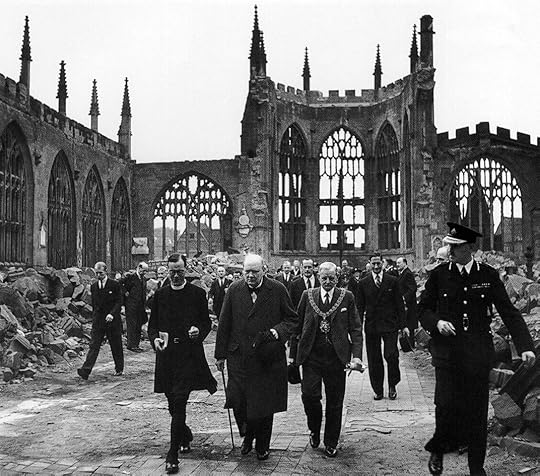
Churchill views the wreck of Coventry Cathedral, damaged by German bombs. (Fremantle/Alamy)
Chapter 39
Ah Youth
THAT HITLER WOULD RETALIATE SEEMED a certainty, and given Germany’s penchant for massed raids, the attack was likely to be a big one.
Thus when air-raid sirens sounded in London on the following Monday morning, August 26, Churchill ordered John Colville and everyone else at 10 Downing Street to go into the building’s air-raid shelter.
Discussion Topics and Questions:
1. Did Hitler make a fatal strategic error in going after London and heavily populated centers? Why or why not?
2. Why do you think Churchill felt that Leipzig was a "pale target"?
3. How do you account for reports that “morale was highest in places that had been most badly bombed.”
4. Were any other readers shocked by the censors' comments blaming poor mothers again? Can you imagine? Appalling really.
“There is a general general complaint of lack of sleep, but writers who speak of shattered nerves would appear to be people who are normally uncourageous, and where mention is made of children’s terror it would seem in most cases, to be the fault of the mother.” (page 192)
Sources: Larson, Erik. The Splendid and the Vile (p. 191). Crown. Kindle Edition, Public Media

Churchill views the wreck of Coventry Cathedral, damaged by German bombs. (Fremantle/Alamy)
Chapter 39
Ah Youth
THAT HITLER WOULD RETALIATE SEEMED a certainty, and given Germany’s penchant for massed raids, the attack was likely to be a big one.
Thus when air-raid sirens sounded in London on the following Monday morning, August 26, Churchill ordered John Colville and everyone else at 10 Downing Street to go into the building’s air-raid shelter.
Discussion Topics and Questions:
1. Did Hitler make a fatal strategic error in going after London and heavily populated centers? Why or why not?
2. Why do you think Churchill felt that Leipzig was a "pale target"?
3. How do you account for reports that “morale was highest in places that had been most badly bombed.”
4. Were any other readers shocked by the censors' comments blaming poor mothers again? Can you imagine? Appalling really.
“There is a general general complaint of lack of sleep, but writers who speak of shattered nerves would appear to be people who are normally uncourageous, and where mention is made of children’s terror it would seem in most cases, to be the fault of the mother.” (page 192)
Sources: Larson, Erik. The Splendid and the Vile (p. 191). Crown. Kindle Edition, Public Media
message 325:
by
Bentley, Group Founder, Leader, Chief
(last edited Sep 05, 2020 03:58PM)
(new)
-
rated it 4 stars
And so we begin:
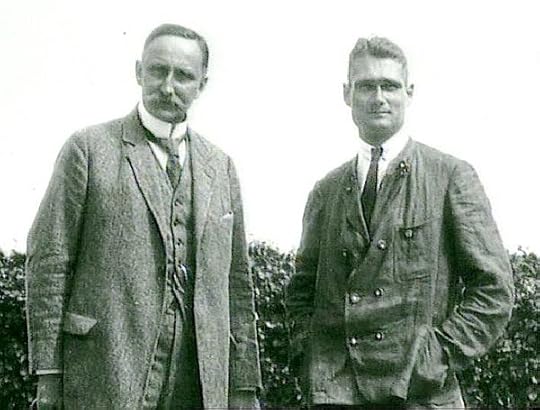
Karl Haushofer with Rudolph Hess - Credit: Friedrich V. Hauser
Chapter 40
Berlin and Washington
THE ATTACKS ON BERLIN DID indeed enrage Hitler.
On Saturday, August 31, he shed his prior reluctance reluctance and ordered his air chief, Göring, to begin preparations for an assault on London itself. The attack, Hitler instructed, was to reduce enemy morale while still maintaining focus on targets of strategic value. He did not, as yet, wish to cause “mass panic.”
But Hitler understood as well as anyone that given the inherent inaccuracy of bombing, attacks against strategic targets within London would be tantamount to targeting civilian districts outright.
Discussion Topics and Questions:
More:
https://thediplomat.com/2015/03/karl-...
https://moderndiplomacy.eu/2020/08/08...
https://www.europenowjournal.org/2017...
https://www.newworldencyclopedia.org/...
https://en.wikipedia.org/wiki/Douglas...
https://en.wikipedia.org/wiki/Albrech...
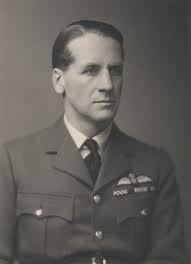
Lord Hamilton
 by
by
 Robert D. Kaplan
Robert D. Kaplan
 by Francis Sempa (no photo)
by Francis Sempa (no photo)
 by Karl Haushofer (no photo)
by Karl Haushofer (no photo)
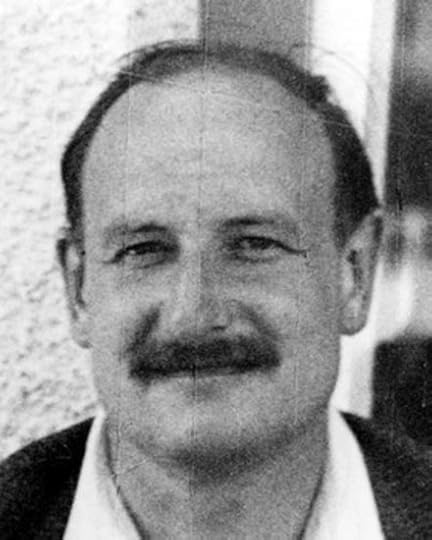
Albrecht Haushofer (public domain)
Sources: The Diplomat, Modern Diplomacy, European Now Journal, New World Encyclopedia, Wikipedia, Larson, Erik. The Splendid and the Vile (p. 196). Crown. Kindle Edition.
Discussion Topics and Questions:
1. Why was it so shocking to Hitler that England would dare strike back? How enraged and shocked can someone be when you are burning and bombing London?
2. What were your impressions of Goring after reading this passage:
"Göring craved revenge on the English for humiliating his air force, and was delighted at the prospect of unleashing the full power of his armada against the English capital. (page 196)
3. What were your impressions of the Hess/Haushofer scheme to contact Lord Hamilton? Did you realize at the time that it was a half baked peace attempt that had no agreement from Hitler or do you think that Hess was just used as a scape goat?
4. How did Charles Lindbergh who was a renowned American hero get himself into some trouble with the press and the public?

Karl Haushofer with Rudolph Hess - Credit: Friedrich V. Hauser
Chapter 40
Berlin and Washington
THE ATTACKS ON BERLIN DID indeed enrage Hitler.
On Saturday, August 31, he shed his prior reluctance reluctance and ordered his air chief, Göring, to begin preparations for an assault on London itself. The attack, Hitler instructed, was to reduce enemy morale while still maintaining focus on targets of strategic value. He did not, as yet, wish to cause “mass panic.”
But Hitler understood as well as anyone that given the inherent inaccuracy of bombing, attacks against strategic targets within London would be tantamount to targeting civilian districts outright.
Discussion Topics and Questions:
More:
https://thediplomat.com/2015/03/karl-...
https://moderndiplomacy.eu/2020/08/08...
https://www.europenowjournal.org/2017...
https://www.newworldencyclopedia.org/...
https://en.wikipedia.org/wiki/Douglas...
https://en.wikipedia.org/wiki/Albrech...

Lord Hamilton
 by
by
 Robert D. Kaplan
Robert D. Kaplan by Francis Sempa (no photo)
by Francis Sempa (no photo) by Karl Haushofer (no photo)
by Karl Haushofer (no photo)
Albrecht Haushofer (public domain)
Sources: The Diplomat, Modern Diplomacy, European Now Journal, New World Encyclopedia, Wikipedia, Larson, Erik. The Splendid and the Vile (p. 196). Crown. Kindle Edition.
Discussion Topics and Questions:
1. Why was it so shocking to Hitler that England would dare strike back? How enraged and shocked can someone be when you are burning and bombing London?
2. What were your impressions of Goring after reading this passage:
"Göring craved revenge on the English for humiliating his air force, and was delighted at the prospect of unleashing the full power of his armada against the English capital. (page 196)
3. What were your impressions of the Hess/Haushofer scheme to contact Lord Hamilton? Did you realize at the time that it was a half baked peace attempt that had no agreement from Hitler or do you think that Hess was just used as a scape goat?
4. How did Charles Lindbergh who was a renowned American hero get himself into some trouble with the press and the public?
message 326:
by
Bentley, Group Founder, Leader, Chief
(last edited Sep 05, 2020 04:28PM)
(new)
-
rated it 4 stars
And so we begin:
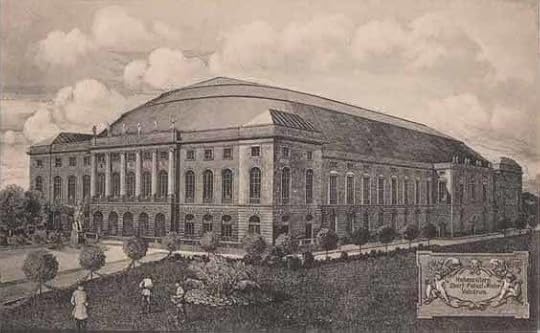
Postcard depiction of new Sportpalast, 1910 - Wikipedia
Chapter 41
He is Coming
ON WEDNESDAY, SEPTEMBER 4, HITLER stepped to the rostrum at the Berlin Sportpalast, where some years earlier he had made his first speech as chancellor of Germany.
Now he prepared to speak to a huge audience of female social workers and nurses, ostensibly to honor the opening of the year’s War Winter Relief campaign—Kriegswinterhilfswerk—to raise money to provide food, heat, and clothing to impoverished Germans.
He used the opportunity, however, to launch a tirade against Britain for its recent air attacks against Germany. “Mr. Churchill,” he said, “is demonstrating his new brain child, the night air raid.”
Discussion Topics and Questions:
More:
https://www.battleofbritain1940.net/0...
http://der-fuehrer.org/reden/english/...
http://ww2today.com/4th-september-194...
http://news.bbc.co.uk/onthisday/hi/da...
Source: Battle of Britain Historical Society, World War II Today, BBC Home, Larson, Erik. The Splendid and the Vile (p. 199). Crown. Kindle Edition.
Discussion Topics and Questions:
1. How was the X-System better than the Knickebein one? How could a system that was so complex that only specially trained pilots could figure out be better than what they had used previously?
2. What did you think of Hitler's words: “Be calm. Be calm. He’s coming! He’s coming!” It appears to me that he thought that he had super powers. What are your thoughts?
3 In this chapter, one could see that Hitler was not terribly stable and could come unleashed if thwarted. What were those signs?

Postcard depiction of new Sportpalast, 1910 - Wikipedia
Chapter 41
He is Coming
ON WEDNESDAY, SEPTEMBER 4, HITLER stepped to the rostrum at the Berlin Sportpalast, where some years earlier he had made his first speech as chancellor of Germany.
Now he prepared to speak to a huge audience of female social workers and nurses, ostensibly to honor the opening of the year’s War Winter Relief campaign—Kriegswinterhilfswerk—to raise money to provide food, heat, and clothing to impoverished Germans.
He used the opportunity, however, to launch a tirade against Britain for its recent air attacks against Germany. “Mr. Churchill,” he said, “is demonstrating his new brain child, the night air raid.”
Discussion Topics and Questions:
More:
https://www.battleofbritain1940.net/0...
http://der-fuehrer.org/reden/english/...
http://ww2today.com/4th-september-194...
http://news.bbc.co.uk/onthisday/hi/da...
Source: Battle of Britain Historical Society, World War II Today, BBC Home, Larson, Erik. The Splendid and the Vile (p. 199). Crown. Kindle Edition.
Discussion Topics and Questions:
1. How was the X-System better than the Knickebein one? How could a system that was so complex that only specially trained pilots could figure out be better than what they had used previously?
2. What did you think of Hitler's words: “Be calm. Be calm. He’s coming! He’s coming!” It appears to me that he thought that he had super powers. What are your thoughts?
3 In this chapter, one could see that Hitler was not terribly stable and could come unleashed if thwarted. What were those signs?
message 327:
by
Bentley, Group Founder, Leader, Chief
(last edited Sep 05, 2020 04:28PM)
(new)
-
rated it 4 stars
And so we begin:
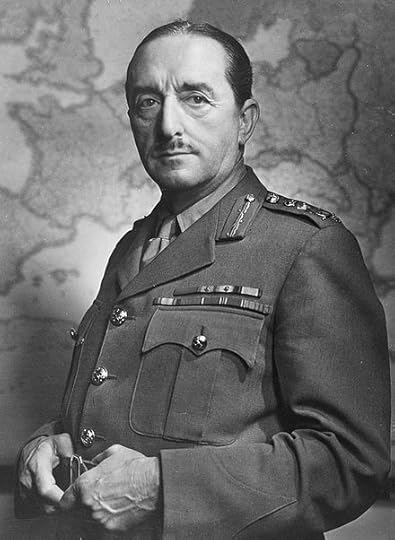
Sir Alan Francis Brooke - (public domain)
Chapter 42
Ominous Doings
ON FRIDAY EVENING, SEPTEMBER 6, Churchill left 10 Downing for Chequers, where, after his usual nap, he had dinner with Pug Ismay and his two top generals, John Dill, chief of the Imperial General Staff, and Alan Brooke, commander in chief of Home Forces.
Discussion Topics and Questions:
1. What signs were there of an impending invasion and what were your thoughts about calling the invasion alert "Cromwell"? What impressed you the most about Churchill's and his staff's strategic planning and backup options?
Sources: Larson, Erik. The Splendid and the Vile (p. 203). Crown. Kindle Edition.

Sir Alan Francis Brooke - (public domain)
Chapter 42
Ominous Doings
ON FRIDAY EVENING, SEPTEMBER 6, Churchill left 10 Downing for Chequers, where, after his usual nap, he had dinner with Pug Ismay and his two top generals, John Dill, chief of the Imperial General Staff, and Alan Brooke, commander in chief of Home Forces.
Discussion Topics and Questions:
1. What signs were there of an impending invasion and what were your thoughts about calling the invasion alert "Cromwell"? What impressed you the most about Churchill's and his staff's strategic planning and backup options?
Sources: Larson, Erik. The Splendid and the Vile (p. 203). Crown. Kindle Edition.
message 328:
by
Bentley, Group Founder, Leader, Chief
(last edited Sep 05, 2020 04:30PM)
(new)
-
rated it 4 stars
And so we begin:
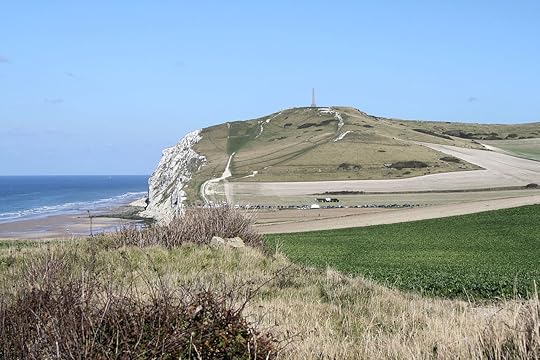
Cap Blanc Nez on a summer day - (public domain)
Chapter 43
Cap Blanc-Nez
ON SATURDAY MORNING, GÖRING AND two senior Luftwaffe officers made their way along the French coast in a motorcade consisting of three large Mercedes-Benzes led by soldiers on motorcycles.
His “special train” had brought him from his temporary headquarters at The Hague to Calais, so that he could travel in comfort and examine new troves of art along the way, accompanied always by a detachment of twenty plainclothes members of Heinrich Himmler’s Sicherheitsdienst, the state security service, or SD; if he saw something he liked, he could have it packed aboard immediately.
Göring exhibited an “all-embracing acquisitiveness,” according to a later report by U.S. investigators. “There were no limits to his desires as far as the Collection was concerned.” His long leather coat made him look immense; underneath, he wore his medals and his favorite white uniform.
Discussion Topics and Questions:
1. Once again, we are told about Goring and his idiosyncrasies. What bothered you the most about this chapter and the description of this particular Nazi?
Sources: Larson, Erik. The Splendid and the Vile (p. 205). Crown. Kindle Edition, Wikimedia

Cap Blanc Nez on a summer day - (public domain)
Chapter 43
Cap Blanc-Nez
ON SATURDAY MORNING, GÖRING AND two senior Luftwaffe officers made their way along the French coast in a motorcade consisting of three large Mercedes-Benzes led by soldiers on motorcycles.
His “special train” had brought him from his temporary headquarters at The Hague to Calais, so that he could travel in comfort and examine new troves of art along the way, accompanied always by a detachment of twenty plainclothes members of Heinrich Himmler’s Sicherheitsdienst, the state security service, or SD; if he saw something he liked, he could have it packed aboard immediately.
Göring exhibited an “all-embracing acquisitiveness,” according to a later report by U.S. investigators. “There were no limits to his desires as far as the Collection was concerned.” His long leather coat made him look immense; underneath, he wore his medals and his favorite white uniform.
Discussion Topics and Questions:
1. Once again, we are told about Goring and his idiosyncrasies. What bothered you the most about this chapter and the description of this particular Nazi?
Sources: Larson, Erik. The Splendid and the Vile (p. 205). Crown. Kindle Edition, Wikimedia
message 329:
by
Bentley, Group Founder, Leader, Chief
(last edited Sep 05, 2020 04:38PM)
(new)
-
rated it 4 stars
And so we begin:
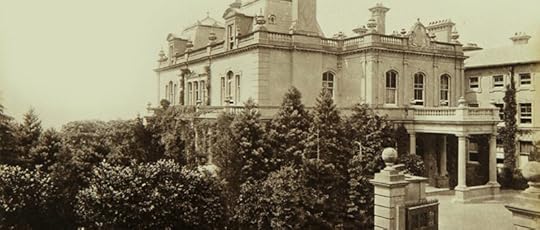
Beaverbrook (Cherkley Court) front. Image courtesy of Beaverbrook
Chapter 44
On a Quiet Blue Day
THE DAY WAS WARM AND still, the sky blue above a rising haze. Temperatures by afternoon were in the nineties, odd for London.
People thronged Hyde Park and lounged on chairs set out beside the Serpentine. Shoppers jammed the stores of Oxford Street and Piccadilly.
The giant barrage balloons overhead cast lumbering shadows on the streets below. After the August air raid when bombs first fell on London proper, the city had retreated back into a dream of invulnerability, punctuated now and then by false alerts whose once-terrifying novelty was muted by the failure of bombers to appear.
The late-summer heat imparted an air of languid complacency. In the city’s West End, theaters hosted twenty-four productions, among them the play Rebecca, adapted for the stage by Daphne du Maurier from her novel of the same name. Alfred Hitchcock’s movie version, starring Laurence Olivier and Joan Fontaine, was also playing in London, as were the films The Thin Man and the long-running Gaslight.
Discussion Topics and Questions:
1. What do you think were the real reasons for Lord Beaverbrook wanting his deputy to lie about his whereabouts? How odd was that especially after he told everyone that he was leaving for the countryside earlier?
2. World War II must have been an odd war. In the countryside, life went on without missing a beat while London was being bombed and burned. How odd that these horrors of war were unleashed on a quiet blue day?
3. Your thoughts on this paragraph:
"The coming destruction of London, he said (Goebbels), “would probably represent the greatest human catastrophe in history.” He hoped to blunt the inevitable world outcry by casting the assault as a deserved response to Britain’s bombing of German civilians, but thus far British raids over Germany, including those of the night before, had not produced the levels of death and destruction that would justify such a massive reprisal. (p. 210)
or this one:
“Since we are being opposed and calumniated throughout the world as enemies of the Jews,” he (Goebbels) said, “why should we derive only the disadvantages and not also the advantages, i.e. the elimination of the Jews from the theater, the cinema, public life and administration. If we are then still attacked as enemies of the Jews we shall at least be able to say with a clear conscience: It was worth it, we have benefited from it.” (p. 210)
More:
https://www.exploringsurreyspast.org....
Sources: Larson, Erik. The Splendid and the Vile (p. 209). Crown. Kindle Edition, Exploring Surrey's Past

Beaverbrook (Cherkley Court) front. Image courtesy of Beaverbrook
Chapter 44
On a Quiet Blue Day
THE DAY WAS WARM AND still, the sky blue above a rising haze. Temperatures by afternoon were in the nineties, odd for London.
People thronged Hyde Park and lounged on chairs set out beside the Serpentine. Shoppers jammed the stores of Oxford Street and Piccadilly.
The giant barrage balloons overhead cast lumbering shadows on the streets below. After the August air raid when bombs first fell on London proper, the city had retreated back into a dream of invulnerability, punctuated now and then by false alerts whose once-terrifying novelty was muted by the failure of bombers to appear.
The late-summer heat imparted an air of languid complacency. In the city’s West End, theaters hosted twenty-four productions, among them the play Rebecca, adapted for the stage by Daphne du Maurier from her novel of the same name. Alfred Hitchcock’s movie version, starring Laurence Olivier and Joan Fontaine, was also playing in London, as were the films The Thin Man and the long-running Gaslight.
Discussion Topics and Questions:
1. What do you think were the real reasons for Lord Beaverbrook wanting his deputy to lie about his whereabouts? How odd was that especially after he told everyone that he was leaving for the countryside earlier?
2. World War II must have been an odd war. In the countryside, life went on without missing a beat while London was being bombed and burned. How odd that these horrors of war were unleashed on a quiet blue day?
3. Your thoughts on this paragraph:
"The coming destruction of London, he said (Goebbels), “would probably represent the greatest human catastrophe in history.” He hoped to blunt the inevitable world outcry by casting the assault as a deserved response to Britain’s bombing of German civilians, but thus far British raids over Germany, including those of the night before, had not produced the levels of death and destruction that would justify such a massive reprisal. (p. 210)
or this one:
“Since we are being opposed and calumniated throughout the world as enemies of the Jews,” he (Goebbels) said, “why should we derive only the disadvantages and not also the advantages, i.e. the elimination of the Jews from the theater, the cinema, public life and administration. If we are then still attacked as enemies of the Jews we shall at least be able to say with a clear conscience: It was worth it, we have benefited from it.” (p. 210)
More:
https://www.exploringsurreyspast.org....
Sources: Larson, Erik. The Splendid and the Vile (p. 209). Crown. Kindle Edition, Exploring Surrey's Past
message 330:
by
Bentley, Group Founder, Leader, Chief
(last edited Sep 04, 2020 08:20PM)
(new)
-
rated it 4 stars
The Secrets of a Churchill Speech
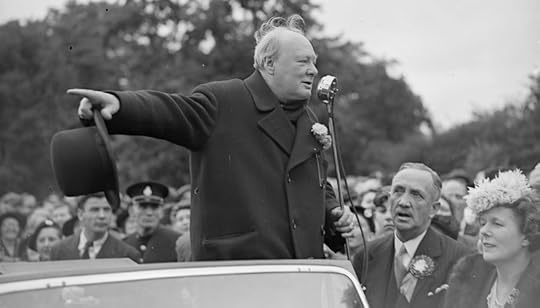
Winston Churchill - (public domain)
• Churchill was skilled at offering both a sober appraisal of facts and reason for optimism.
• He had a knack for making people feel loftier, stronger, and above all more courageous.
• Diarist Harold Nicolson said, “I feel so much in the spirit of Winston’s great speech that I could face a world of enemies.”
• Churchill’s great trick—one he had demonstrated before and would demonstrate again—was his ability to deliver dire news and yet leave his audience feeling encouraged and uplifted.
• Churchill would often test out ideas and phrases in the course of ordinary conversation.
• He kept snippets of poems and biblical passages in a special “Keep Handy” file. “It is curious,” wrote noted diarist Sir John Colville, “to see how, as it were, he fertilizes a phrase or a line of poetry for weeks and then gives birth to it in a speech.”
• Samuel Battersby, a government official who accompanied Churchill on a tour to view bomb- damage around London, said Churchill’s “uniquely unpredictable magic” was his ability to transform “the despondent misery of disaster into a grimly certain stepping stone to ultimate victory.”
Source: Random House Book Kit

Winston Churchill - (public domain)
• Churchill was skilled at offering both a sober appraisal of facts and reason for optimism.
• He had a knack for making people feel loftier, stronger, and above all more courageous.
• Diarist Harold Nicolson said, “I feel so much in the spirit of Winston’s great speech that I could face a world of enemies.”
• Churchill’s great trick—one he had demonstrated before and would demonstrate again—was his ability to deliver dire news and yet leave his audience feeling encouraged and uplifted.
• Churchill would often test out ideas and phrases in the course of ordinary conversation.
• He kept snippets of poems and biblical passages in a special “Keep Handy” file. “It is curious,” wrote noted diarist Sir John Colville, “to see how, as it were, he fertilizes a phrase or a line of poetry for weeks and then gives birth to it in a speech.”
• Samuel Battersby, a government official who accompanied Churchill on a tour to view bomb- damage around London, said Churchill’s “uniquely unpredictable magic” was his ability to transform “the despondent misery of disaster into a grimly certain stepping stone to ultimate victory.”
Source: Random House Book Kit
message 331:
by
Bentley, Group Founder, Leader, Chief
(last edited Sep 04, 2020 02:54PM)
(new)
-
rated it 4 stars
These are the Reader Guide questions for the book which I periodically post for discussion:
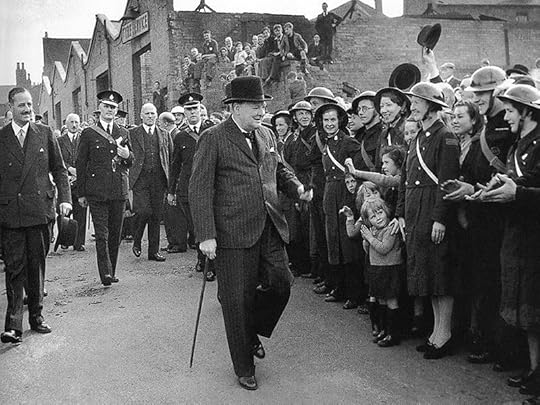
Winston Churchill visits bomb-damaged Birmingham, England, during the Blitz. (Fremantle/Alamy)
READERS GUIDE
1. The book’s title comes from a line in John Colville’s diary about the peculiar beauty of watching bombs fall over his home city: “Never was there such a contrast of natural splendor and human vileness.” How do you think a tragedy like this could be considered beautiful? Why do you think Larson chose this title?
2. The Splendid and the Vile covers Winston Churchill’s first year in office. What are the benefits of focusing on this truncated time period?
3. Larson draws on many sources to provide a vivid picture of Churchill’s home and family life in his first year as prime minister. What struck you most about his family dynamic? Considering how powerful he was at the time, was his relationship with his family what you would have expected it to be? Why or why not?
4. Churchill’s most trusted advisers spent many long days and nights with the prime minister, so much so that they became like members of his family. Why do you think Churchill had such close relationships with his political advisers? What do you see as being the key advantages and disadvantages of running a government office in this way? Which of Churchill’s political relationships was the most interesting to you?
5. Larson provides various perspectives in the book, from diaries by Mary Churchill and Mass-Observation participants to the inner workings of both Churchill’s and Hitler’s cabinets. How did these different perspectives enhance your understanding of life in 1940 and 1941?
6. Reading about how war was waged and discussed by the public in 1940, do you see any similarities to how we talk about warfare today?
7. How did you feel reading about the raids? How would your daily life and your priorities change if your country were experiencing similar attacks with such frequency?
8. The book includes anecdotes about a vast array of characters around Churchill, such as his daughter-in-law Pamela, his children Randolph and Mary, and his wife, Clementine. What are the benefits of including various stories about the people related to Churchill—like Pamela’s affair, or Randolph’s gambling habits—in a book discussing his first year in office? Which of these characters did you find to be the most interesting? The most surprising?
9. Mary Churchill recounts the evening when the Café de Paris—where she and her friends had planned to go dancing—was bombed. After the initial shock, her group decides that the dead would have wanted them to continue their evening of gaiety and dancing elsewhere, and they move on to another location. What did you think about this choice? What do you think you would have done in their situation?
10. Discuss Mary Churchill’s portrayal in the book. Do you feel she grows and matures throughout this tumultuous year? Why or why not?
11. What was the most surprising thing you learned about Churchill? Why did it surprise you?
12. While England rationed food, gasoline, and other supplies during the war, Churchill and his cabinet received extra provisions. What did you think about this policy? Do you think government officials are justified in implementing such measures during a time of crisis? Why or why not?
13. Were there any decisions Churchill made over the course of his first year as prime minister that you disagreed with? If so, which? Which of his decisions were you most impressed with?
14. Do you think there has been another leader as universally beloved in their day as Churchill was in his? If so, who? If not, why not?
More:
How Winston Churchill Endured the Blitz—and Taught the People of England to Do the Same - In a new book, best-selling author Erik Larson examines the determination of the ‘British Bulldog’ during England’s darkest hour
Link to article: https://www.smithsonianmag.com/histor...
Sources: RH Reader's Guide, Smithsonian Magazine

Winston Churchill visits bomb-damaged Birmingham, England, during the Blitz. (Fremantle/Alamy)
READERS GUIDE
1. The book’s title comes from a line in John Colville’s diary about the peculiar beauty of watching bombs fall over his home city: “Never was there such a contrast of natural splendor and human vileness.” How do you think a tragedy like this could be considered beautiful? Why do you think Larson chose this title?
2. The Splendid and the Vile covers Winston Churchill’s first year in office. What are the benefits of focusing on this truncated time period?
3. Larson draws on many sources to provide a vivid picture of Churchill’s home and family life in his first year as prime minister. What struck you most about his family dynamic? Considering how powerful he was at the time, was his relationship with his family what you would have expected it to be? Why or why not?
4. Churchill’s most trusted advisers spent many long days and nights with the prime minister, so much so that they became like members of his family. Why do you think Churchill had such close relationships with his political advisers? What do you see as being the key advantages and disadvantages of running a government office in this way? Which of Churchill’s political relationships was the most interesting to you?
5. Larson provides various perspectives in the book, from diaries by Mary Churchill and Mass-Observation participants to the inner workings of both Churchill’s and Hitler’s cabinets. How did these different perspectives enhance your understanding of life in 1940 and 1941?
6. Reading about how war was waged and discussed by the public in 1940, do you see any similarities to how we talk about warfare today?
7. How did you feel reading about the raids? How would your daily life and your priorities change if your country were experiencing similar attacks with such frequency?
8. The book includes anecdotes about a vast array of characters around Churchill, such as his daughter-in-law Pamela, his children Randolph and Mary, and his wife, Clementine. What are the benefits of including various stories about the people related to Churchill—like Pamela’s affair, or Randolph’s gambling habits—in a book discussing his first year in office? Which of these characters did you find to be the most interesting? The most surprising?
9. Mary Churchill recounts the evening when the Café de Paris—where she and her friends had planned to go dancing—was bombed. After the initial shock, her group decides that the dead would have wanted them to continue their evening of gaiety and dancing elsewhere, and they move on to another location. What did you think about this choice? What do you think you would have done in their situation?
10. Discuss Mary Churchill’s portrayal in the book. Do you feel she grows and matures throughout this tumultuous year? Why or why not?
11. What was the most surprising thing you learned about Churchill? Why did it surprise you?
12. While England rationed food, gasoline, and other supplies during the war, Churchill and his cabinet received extra provisions. What did you think about this policy? Do you think government officials are justified in implementing such measures during a time of crisis? Why or why not?
13. Were there any decisions Churchill made over the course of his first year as prime minister that you disagreed with? If so, which? Which of his decisions were you most impressed with?
14. Do you think there has been another leader as universally beloved in their day as Churchill was in his? If so, who? If not, why not?
More:
How Winston Churchill Endured the Blitz—and Taught the People of England to Do the Same - In a new book, best-selling author Erik Larson examines the determination of the ‘British Bulldog’ during England’s darkest hour
Link to article: https://www.smithsonianmag.com/histor...
Sources: RH Reader's Guide, Smithsonian Magazine
Marc wrote: "speaking as a guy, and I know many pilots had died, but I did enjoy looking at those photos of downed german planes... gonna watch those youtube videos that bentley had posted later today. As for t..."
The loss of any combatants in war is always sad because many of them had no choice but to serve. And each one of these young men was somebody's cherished son, young husband, brother, nephew, etc. So war really has no victors.
However, there was no choice for the world but to defeat the Nazis and so many died to wipe out the horrific deeds of that party and of Hitler himself. So many innocent people died at the hands of the Nazis during the Holocaust.
What a horrible time that must have been.
The loss of any combatants in war is always sad because many of them had no choice but to serve. And each one of these young men was somebody's cherished son, young husband, brother, nephew, etc. So war really has no victors.
However, there was no choice for the world but to defeat the Nazis and so many died to wipe out the horrific deeds of that party and of Hitler himself. So many innocent people died at the hands of the Nazis during the Holocaust.
What a horrible time that must have been.
message 333:
by
Bentley, Group Founder, Leader, Chief
(last edited Sep 05, 2020 08:14AM)
(new)
-
rated it 4 stars
Marc wrote: "ah, finally caught up!!! sorry, took a couple of months off, the pace was too slow, read a crapload of magazines, now, back and juggling between 3 books, so I'm good and will maintain the pace!"
Marc, this has been a good book so far in many ways but a strange big book too. I steered away from talking any more about Colville's ill fated romances and unrequited love and thought we were done with that nonsense; and then much to my dismay - we come across some gold dressing gown and worse still -Rupert and Joan's escapades (yikes). I do not consider this an historian's history; but more like a movie/TV script for some netflix series. Entertaining but in some spots - fluff though verifiable and riveting still. He also seems to be enamored with Mary Churchill and her girlhood flirtations.
I am not sure sometimes what this author was/is thinking? But the book is a page turner and probably the author wanted it to be a money maker (which it is). Entertaining though.
Marc, this has been a good book so far in many ways but a strange big book too. I steered away from talking any more about Colville's ill fated romances and unrequited love and thought we were done with that nonsense; and then much to my dismay - we come across some gold dressing gown and worse still -Rupert and Joan's escapades (yikes). I do not consider this an historian's history; but more like a movie/TV script for some netflix series. Entertaining but in some spots - fluff though verifiable and riveting still. He also seems to be enamored with Mary Churchill and her girlhood flirtations.
I am not sure sometimes what this author was/is thinking? But the book is a page turner and probably the author wanted it to be a money maker (which it is). Entertaining though.
This is an interesting exhibit/site called Guests of the Third Reich which shows the location of all of the POW camps that Germany had where in this case American POWs were held along with many other prisoners. Though America was not in the war at the time of this book; I thought it would be interesting to post.
Additionally make sure to click on the tabs at the top for additional films and informations.
Link to exhibit, films, etc.: https://guestsofthethirdreich.org/home/
Source: National World War II Museum
Additionally make sure to click on the tabs at the top for additional films and informations.
Link to exhibit, films, etc.: https://guestsofthethirdreich.org/home/
Source: National World War II Museum
This is an interesting video on Vimeo about Dunkirk which was done at the London Library with Joshua Levine.
Link to video: https://vimeo.com/268800704
 by Joshua Levine (no photo)
by Joshua Levine (no photo)
Sources: Vimeo, London Library
Link to video: https://vimeo.com/268800704
 by Joshua Levine (no photo)
by Joshua Levine (no photo)Sources: Vimeo, London Library
Link to podcast: https://historyhack.podbean.com/e/104...
Joshua Levine, historian and advisor on Christopher Nolan's Dunkirk, commemorates the 80th anniversary of the evacuations with a special programme. Assisted by voice actors Jonathan Kydd, Louisa Gummer and Sharpe's Jason Salkey, as well as a number of History Hack listeners; he describes events on the beaches and places the whole affair into its proper context in the Second World War.
Source: History Hack
Joshua Levine, historian and advisor on Christopher Nolan's Dunkirk, commemorates the 80th anniversary of the evacuations with a special programme. Assisted by voice actors Jonathan Kydd, Louisa Gummer and Sharpe's Jason Salkey, as well as a number of History Hack listeners; he describes events on the beaches and places the whole affair into its proper context in the Second World War.
Source: History Hack
A Discussion of Dunkirk: The History Behind the Major Motion Picture with author Joshua Levine
Link to discussion: https://youtu.be/eOwzZGSxXV0
Sources: Youtube, The National World War II Museum
Link to discussion: https://youtu.be/eOwzZGSxXV0
Sources: Youtube, The National World War II Museum
Next week's reading assignment is as follows: (pages 217 - 234)
Week Sixteen - September 7th - September 13th
Chapter 45: Unpredictable Magic - page 217
Chapter 46: Sleep - page 225
Chapter 47: Terms of Imprisonment - 229
Week Sixteen - September 7th - September 13th
Chapter 45: Unpredictable Magic - page 217
Chapter 46: Sleep - page 225
Chapter 47: Terms of Imprisonment - 229
message 339:
by
Bentley, Group Founder, Leader, Chief
(last edited Sep 05, 2020 03:26PM)
(new)
-
rated it 4 stars
Sir Cyril Newall
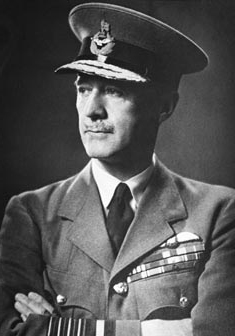
Marshall of the RAF (public domain) - Sir Crilley Newall
Marshal of the Royal Air Force Cyril Louis Norton Newall, 1st Baron Newall, GCB, OM, GCMG, CBE, AM (15 February 1886 – 30 November 1963) was a senior officer of the British Army and Royal Air Force.
He commanded units of the Royal Flying Corps and Royal Air Force in the First World War, and served as Chief of the Air Staff during the first years of the Second World War.
From 1941 to 1946 he was the Governor-General of New Zealand. Born to a military family, Newall studied at the Royal Military College, Sandhurst, before taking a commission as a junior officer in the Royal Warwickshire Regiment in 1905.
After transferring to the 2nd Gurkha Rifles in the Indian Army, he saw active service on the North West Frontier, but after learning to fly in 1911 turned towards a career in military aviation.
During the First World War he rose from flying instructor to command of 41st Wing RFC, the main strategic bombing force, and was awarded the Albert Medal for putting out a fire in an explosives store.
He served in staff positions through the 1920s and was Air Officer Commanding the Middle East Command in the early 1930s before becoming Air Member for Supply and Organisation in 1935.
Newall was appointed Chief of the Air Staff in 1937 and, in that role, supported sharp increases in aircraft production, increasing expenditure on the new, heavily armed, Hurricane and Spitfire fighters, essential to re-equip Fighter Command.
However, he was sacked after the Battle of Britain after political intrigue caused him to lose Churchill's confidence. In 1941 he was appointed Governor-General of New Zealand, holding office until 1946.
Remainder of article:
https://en.wikipedia.org/wiki/Cyril_N...
More:
https://www.tandfonline.com/doi/abs/1...
https://lincolnandchurchill.org/churc...
https://www.iwm.org.uk/history/whos-w...
Sir Cyril Newall - 1940 (1940) - his wife and dogs
Link to video: https://www.youtube.com/watch?v=IvjOw...
Marshal of the Royal Air Force - Sir Cyril Newall
Link to video: https://youtu.be/wiBFgmBzZfU
Sources: Wikipedia, War and Society, Lincoln and Churchill, Time Magazine, IWM, Youtube
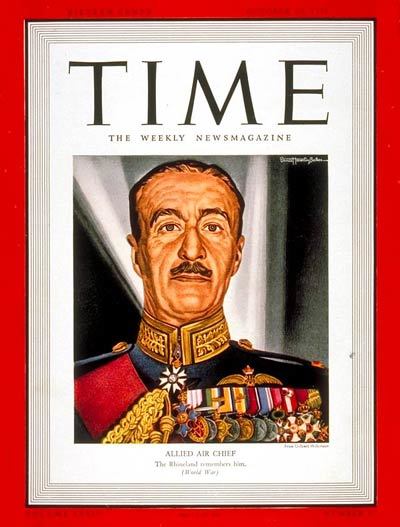
Sir Cyril Newall | Oct. 23, 1939 - Time Magazine

Marshall of the RAF (public domain) - Sir Crilley Newall
Marshal of the Royal Air Force Cyril Louis Norton Newall, 1st Baron Newall, GCB, OM, GCMG, CBE, AM (15 February 1886 – 30 November 1963) was a senior officer of the British Army and Royal Air Force.
He commanded units of the Royal Flying Corps and Royal Air Force in the First World War, and served as Chief of the Air Staff during the first years of the Second World War.
From 1941 to 1946 he was the Governor-General of New Zealand. Born to a military family, Newall studied at the Royal Military College, Sandhurst, before taking a commission as a junior officer in the Royal Warwickshire Regiment in 1905.
After transferring to the 2nd Gurkha Rifles in the Indian Army, he saw active service on the North West Frontier, but after learning to fly in 1911 turned towards a career in military aviation.
During the First World War he rose from flying instructor to command of 41st Wing RFC, the main strategic bombing force, and was awarded the Albert Medal for putting out a fire in an explosives store.
He served in staff positions through the 1920s and was Air Officer Commanding the Middle East Command in the early 1930s before becoming Air Member for Supply and Organisation in 1935.
Newall was appointed Chief of the Air Staff in 1937 and, in that role, supported sharp increases in aircraft production, increasing expenditure on the new, heavily armed, Hurricane and Spitfire fighters, essential to re-equip Fighter Command.
However, he was sacked after the Battle of Britain after political intrigue caused him to lose Churchill's confidence. In 1941 he was appointed Governor-General of New Zealand, holding office until 1946.
Remainder of article:
https://en.wikipedia.org/wiki/Cyril_N...
More:
https://www.tandfonline.com/doi/abs/1...
https://lincolnandchurchill.org/churc...
https://www.iwm.org.uk/history/whos-w...
Sir Cyril Newall - 1940 (1940) - his wife and dogs
Link to video: https://www.youtube.com/watch?v=IvjOw...
Marshal of the Royal Air Force - Sir Cyril Newall
Link to video: https://youtu.be/wiBFgmBzZfU
Sources: Wikipedia, War and Society, Lincoln and Churchill, Time Magazine, IWM, Youtube

Sir Cyril Newall | Oct. 23, 1939 - Time Magazine
message 340:
by
Bentley, Group Founder, Leader, Chief
(last edited Sep 05, 2020 03:22PM)
(new)
-
rated it 4 stars
Seven Pilots who Flew in the Battle of Britain
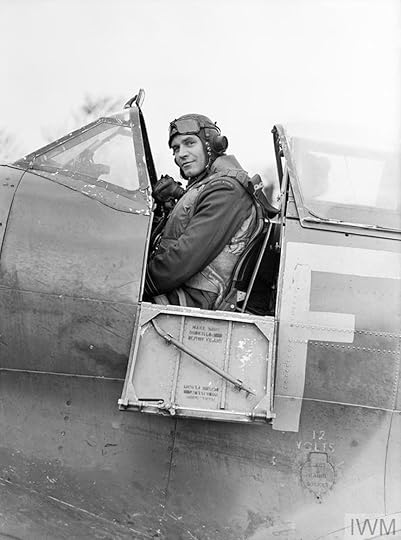
Adolph Malan - IWM
Link: https://www.iwm.org.uk/history/7-pilo...
Source: IWM

Adolph Malan - IWM
Link: https://www.iwm.org.uk/history/7-pilo...
Source: IWM
Speed Bonnie Boat
Skye Boat Song - Outlander Theme Song - Bagpipe Master
"The Skye Boat Song" is a late 19th-century Scottish song recalling the journey of Prince Charles Edward Stuart (Bonnie Prince Charlie) from Benbecula to the Isle of Skye as he evaded capture by government troops after his defeat at the Battle of Culloden in 1746.
Sir Harold Boulton, 2nd Baronet composed the lyrics to an air collected by Anne Campbelle MacLeod in the 1870s, and the line "Over the Sea to Skye" is now a cornerstone of the tourism industry on the Isle of Skye.
Alternative lyrics to the tune were written by Robert Louis Stevenson, probably in 1885. After hearing the Jacobite airs sung by a visitor, he judged the words of this song to be "unworthy", so made a new set of verses "more in harmony with the plaintive tune".
It is often played as a slow lullaby or waltz, and entered into the modern folk canon in the twentieth century with versions by Paul Robeson, Tom Jones, Rod Stewart, Roger Whittaker, Tori Amos, and many others.
Lyrics:
Speed, bonnie boat, like a bird on the wing.
Onward, the sailors cry!
Carry the lad that’s born to be King
Over the sea to Skye.
Loud the winds howls, loud the waves roar,
Thunderclaps rend the air.
Baffled our foes stand on the shore.
Follow they will not dare.
Speed, bonnie boat, like a bird on the wing.
Onward, the sailors cry!
Carry the lad that’s born to be King
Over the sea to Skye.
Many's the lad fought on that day
Well the claymore did wield,
When the night came, silently lay
Dead on Culloden’s field.
Speed, bonnie boat, like a bird on the wing.
Onward, the sailors cry!
Carry the lad that’s born to be King
Over the sea to Skye.
Though the waves leap, soft shall ye sleep,
Ocean's a royal bed.
Rocked in the deep, Flora will keep
Watch by your weary head
Speed, bonnie boat, like a bird on the wing.
Onward, the sailors cry
Carry the lad that’s born to be King
Over the sea to Skye.
Link: https://youtu.be/7YGl162hcXM
Source: Youtube
Skye Boat Song - Outlander Theme Song - Bagpipe Master
"The Skye Boat Song" is a late 19th-century Scottish song recalling the journey of Prince Charles Edward Stuart (Bonnie Prince Charlie) from Benbecula to the Isle of Skye as he evaded capture by government troops after his defeat at the Battle of Culloden in 1746.
Sir Harold Boulton, 2nd Baronet composed the lyrics to an air collected by Anne Campbelle MacLeod in the 1870s, and the line "Over the Sea to Skye" is now a cornerstone of the tourism industry on the Isle of Skye.
Alternative lyrics to the tune were written by Robert Louis Stevenson, probably in 1885. After hearing the Jacobite airs sung by a visitor, he judged the words of this song to be "unworthy", so made a new set of verses "more in harmony with the plaintive tune".
It is often played as a slow lullaby or waltz, and entered into the modern folk canon in the twentieth century with versions by Paul Robeson, Tom Jones, Rod Stewart, Roger Whittaker, Tori Amos, and many others.
Lyrics:
Speed, bonnie boat, like a bird on the wing.
Onward, the sailors cry!
Carry the lad that’s born to be King
Over the sea to Skye.
Loud the winds howls, loud the waves roar,
Thunderclaps rend the air.
Baffled our foes stand on the shore.
Follow they will not dare.
Speed, bonnie boat, like a bird on the wing.
Onward, the sailors cry!
Carry the lad that’s born to be King
Over the sea to Skye.
Many's the lad fought on that day
Well the claymore did wield,
When the night came, silently lay
Dead on Culloden’s field.
Speed, bonnie boat, like a bird on the wing.
Onward, the sailors cry!
Carry the lad that’s born to be King
Over the sea to Skye.
Though the waves leap, soft shall ye sleep,
Ocean's a royal bed.
Rocked in the deep, Flora will keep
Watch by your weary head
Speed, bonnie boat, like a bird on the wing.
Onward, the sailors cry
Carry the lad that’s born to be King
Over the sea to Skye.
Link: https://youtu.be/7YGl162hcXM
Source: Youtube
message 342:
by
Bentley, Group Founder, Leader, Chief
(last edited Sep 05, 2020 03:45PM)
(new)
-
rated it 4 stars
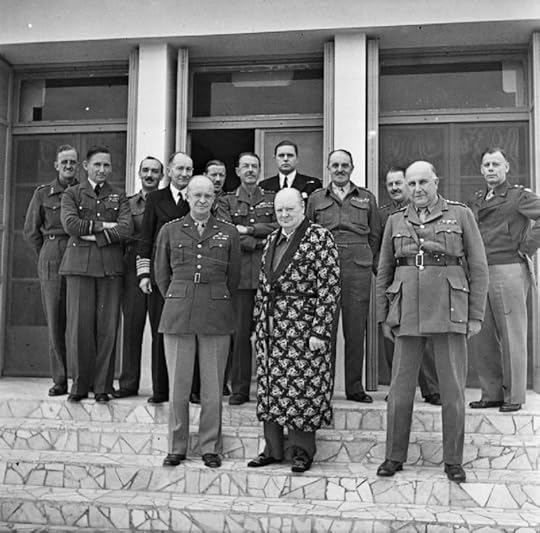
Winston Churchill in his dragon patterned dressing gown and monogrammed slippers at the Casablanca conference, Tunisia, Jan. 1943. Churchill was recovering from pneumonia. Standing to Churchill’s left in the photo is Supreme Allied Commander, General Dwight D Eisenhower.
Link to article: https://lightwater.wordpress.com/2018...
Source: Lightwater Word Press
Progress:
We are up to date and the moderator has completed adding all material through the end of Chapter 44 - through page 216. Please feel free to join the discussion at any time by posting and introducing yourself and letting us know from where you are reading globally. You do not have to use spoiler html if you only post up through page 216 this week.
Next week's reading assignment is as follows: (pages 217 - 234)
Week Sixteen - September 7th - September 13th
Chapter 45: Unpredictable Magic - page 217
Chapter 46: Sleep - page 225
Chapter 47: Terms of Imprisonment - 229
We are up to date and the moderator has completed adding all material through the end of Chapter 44 - through page 216. Please feel free to join the discussion at any time by posting and introducing yourself and letting us know from where you are reading globally. You do not have to use spoiler html if you only post up through page 216 this week.
Next week's reading assignment is as follows: (pages 217 - 234)
Week Sixteen - September 7th - September 13th
Chapter 45: Unpredictable Magic - page 217
Chapter 46: Sleep - page 225
Chapter 47: Terms of Imprisonment - 229
message 344:
by
Bentley, Group Founder, Leader, Chief
(last edited Sep 06, 2020 12:04AM)
(new)
-
rated it 4 stars
Joseph Kennedy
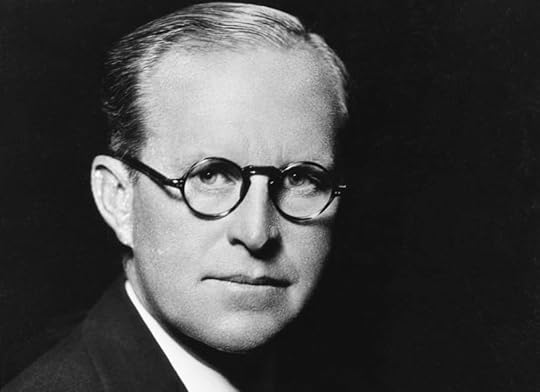
Joseph Kennedy in New York on July 3, 1934 - Bettmann/Getty Images
Larson doesn't like Kennedy!
Though Churchill, Beaverbrook and cabinet went to the countryside for long periods of time during the war - Chequers, Chartwell, Cherkley Court or the fact that Clementine and Mary went to Breccles Hall in Norfolk; it was not OK for the American ambassador and his large family to do the same as far as the British populace were concerned or the author himself.
Or maybe Churchill himself was stirring the pot and the propaganda against Kennedy because they probably intercepted all of his posts highlighting the deficiencies that Kennedy honestly accessed and was posting back home to FDR.
FDR expected an honest broker in Kennedy and possibly Kennedy was trying to give him the information as he saw it which was not to Churchill's liking.
And of course, Churchill was determined to bring the US into the war and he probably saw Joe Kennedy (who was formidable) as an obstacle to being able to do just that. But Kennedy was certainly not Churchill's cup of tea and neither was he Eric Larson's.
Having said the above, some very troubling statements that allegedly Kennedy made would not have been helpful and are most assuredly disappointing and distasteful if true. If FDR and his closest confidantes had seen fit to do more for the Jewish people (which many folks are uncertain why FDR did what he did), more Jewish people could have been saved. It is hard to discern what part of FDR's decision making was based upon appearing neutral or was done by FDR to promote his re-election. Kennedy was not always known to be circumspect in speech; but I believe that Churchill set him up.
It is important to remember that Kennedy suffered personally from the war and he lost his eldest son Joe Jr., and the war injured Jack Kennedy and killed his son in law. He lived to see two of his sons assassinated which must have destroyed him personally later in his life.
Author Will Smith had this to say in an interview with Fred Tyse:
FRED TYSE: Your book debunks a lot of myths about Joseph Kennedy. One of the prejudices I had about him was that he was, some time during the 1930s at least, an admirer of Adolf Hitler’s. That is not something that comes out at all in here, very much to the contrary. I wonder if we might start by your elaborating on that a little bit.
WILL SWIFT: Yes, I would say that one of the myths about Joe Kennedy that needs to end, starting today, is that he was pro-Hitler and pro-Nazi. That’s not true. While as a man steeped in economics, he was fascinated by and interested in the economic miracle in Germany in the early 1930s, but he never had the sense that Hitler was anyone he wanted to identify with. And he very soon saw that Hitler was not someone who would be at all helpful to Europe or the United States. When Joe went over to London, he was there for only one week -- as an untrained diplomat – when Hitler invaded Austria. Talk about a training on the job!
He felt constrained during his ambassadorship that he should not speak out too directly about his negative feelings toward Hitler, because he thought it was not appropriate to his role, but also because he feared, interestingly enough, that if people spoke too negatively, Hitler would crack down further on the Jews. This book shows how he tries to work with the Nazi government to find a path to peace. But that’s not the same thing as being for them.
FRED TYSE: You mention the Jews. This is another preconception that people have about Joseph Kennedy, that he was anti-Semitic. There are elements in your book that explain why people might have thought that of him, and then there are other parts where you go to great lengths to debunk that idea about him. And I wonder if you could go into both those sides.
WILL SWIFT: Yes. Certainly, another myth about Joe Kennedy is that he was entirely anti-Semitic. What I found is an extremely complicated picture. For instance, in Rose Kennedy’s autobiography, she mentions that he did a lot to help Jewish refugees. But, initially, I couldn’t find anything written by other historians to document exactly what he did. I knew that people wouldn’t necessarily take Rose’s word for it without evidence. So I did a very careful study, and found a number of things that he did.
There was a Jewish man, Alan Stein, on his diplomatic staff, and there was a tradition in court that no Jewish diplomat had ever been presented to the King and Queen. Joe was outraged by this, and he worked it and worked it until finally the people in charge of protocol gave in and allowed Alan Stein to be presented at court. In terms of Jewish refugees, many of you know that in the spring of 1939 many German and Austrian Jews were getting on ships, trying desperately to get to other parts of the world. There was a famous ship called the St. Louis, which had gotten permission ahead of time to go to Cuba. But when they arrived in Havana, the Cuban government suddenly decided they didn’t want them. So they were going to be then sent back to Europe, which was obviously a very dangerous situation for them. Roosevelt at that time did not feel he had the political clout to take them in. Roosevelt turned them down, because he thought it would be too unpopular, but Joe Kennedy worked very hard to help get 300 of them situated in England. He also worked in concert with other diplomats to make sure the rest of them were put in places like France and Belgium. Unfortunately, many of the people who didn’t go to England ended up dying in concentration camps when countries like France were taken over by the Nazis.
There were constant negotiations to get some of the Jewish children out of Germany. And it was just torturous. Joe, from July, 1938, had been vice chairman of the Evian Commission that worked on how to help Jewish refugees emigrate. He found the situation very painful because things were going so slowly. As a man who grew up feeling like an outsider, he was concerned about the plight of the refugees.
Historians, I find, tend to put all their focus on how ambitious he was for himself and his family. But I don’t think people adequately see how delicately his ambition was entwined with his compassion. The feeling of being an outsider and the great pain that caused in his life not only led him to be ambitious, but also to feel compassionate about people who are in a difficult situation. And he tried to impart that to his kids. So he did work with the situation with the Jewish children. He helped arrange for 190 Jewish children to be brought into Boy Scout camps in England. And these are just a few of the things that he did.
Just one more comment. He was also involved with the situation in Palestine. When the Jewish immigration to Palestine was limited by the British government in the spring of 1939, under the so-called McDonald White Paper, there was tremendous outrage in the Jewish community worldwide. But the interesting thing is he worked so hard on behalf of the Jews that a Palestinian organization called him “a Zionist Joe McCarthy.” And for a man used to being accused of being anti-Semitic, it must have been a relief to be called a Zionist Joe McCarthy.
FRED TYSE: On a personal note, here on Cape Cod, or down in Cape Cod, we just heard about a situation regarding Henry Morgenthau. Joe had a chance to show that he was not an anti-Semite.
WILL SWIFT: Yes. Henry Morgenthau wanted to join a yachting club, I believe it was, on Cape Cod, and they weren’t allowing Jews in. Joe made a stink, saying that he would drop out of the club, and they finally invited Morgenthau in. Now, one further thing I should say is that Joe Kennedy did have a strand of anti-Semitism in him. And being raised as an Irish-Catholic in Boston at the time, you couldn’t help but be exposed to that. But it only came out, as I could see, in this period that I’m writing about, when he felt threatened.
For instance, when he felt attacked by Jewish organizations or members of the media after all he’d done to try to help. The other thing that would threaten him was the fear that Jewish outrage was going to lead the United States into a war that he didn’t think that they could win. So at times like that, a strain of anti-Semitism came up. But it was only when he was threatened, not in a general sense.
Discussion Topics and Questions:
1. What are your thoughts and comments regarding Joe Kennedy and how the author presented him?
2. Reflecting on the often intense conflict between British and American political agendas at the time, playwright Clare Boothe Luce cabled her friend Joe in July 1940: “Confucious say man who get to be American ambassador should make up mind first whether he looks best in pine or mahogany." How true were Clare Boothe Luce's words about being an American ambassador?
3. The actual communications and letters to FDR tell a very different story. In these actual communications, Kennedy is tempered and even handed. What are your thoughts about the actual communications?
More:
https://warfarehistorynetwork.com/201...
https://www.historynet.com/the-kenned...
https://www.jfklibrary.org/events-and...
https://www.ozy.com/true-and-stories/...
https://historynewsnetwork.org/articl...
https://www.pbs.org/wgbh/americanexpe...
https://www.nationalreview.com/2019/0...
Kennedy's Actual Communications with FDR
Link: http://docs.fdrlibrary.marist.edu/psf...
Kennedy's Private Conversations with the US and FDR pilfered by Churchill
Link: https://www.independent.co.uk/arts-en...
Quote: In their eagerness to trap Kennedy, the British security services had his phones bugged. Embassy cars were stopped on a pretext and covertly searched. The Charge d'Affaires, Herschel Johnson, was bombarded in Kennedy's absences with dark hints about the leaking to the Germans of the ambassador's cables to Washington. On 20 May 1940, just days before Dunkirk, the British sprang their trap. Tyler Kent, a cipher clerk at the embassy, was arrested on a charge of stealing almost 2,000 of its top-secret telegrams. The record of Kent's interrogation by Kennedy before he was handed over to the British has been uncovered by historian John Costello. The ambassador's fury is palpable. He had to admit to Roosevelt that their secret correspondence had been filched and decoded; he could not guarantee the security of the embassy's communications. He had been neatly stitched up by Churchill....
 by Will Swift (no photo)
by Will Swift (no photo)
 by
by
 David Nasaw
David Nasaw
 by
by
 Conrad Black
Conrad Black
 by Will Swift (no photo)
by Will Swift (no photo)
Sources: Warfare History Network, History Net, John F. Kennedy Library, Ozy, History News Network, PBS, FDR Library, The National Review, The Independent - UK

Joseph Kennedy in New York on July 3, 1934 - Bettmann/Getty Images
Larson doesn't like Kennedy!
Though Churchill, Beaverbrook and cabinet went to the countryside for long periods of time during the war - Chequers, Chartwell, Cherkley Court or the fact that Clementine and Mary went to Breccles Hall in Norfolk; it was not OK for the American ambassador and his large family to do the same as far as the British populace were concerned or the author himself.
Or maybe Churchill himself was stirring the pot and the propaganda against Kennedy because they probably intercepted all of his posts highlighting the deficiencies that Kennedy honestly accessed and was posting back home to FDR.
FDR expected an honest broker in Kennedy and possibly Kennedy was trying to give him the information as he saw it which was not to Churchill's liking.
And of course, Churchill was determined to bring the US into the war and he probably saw Joe Kennedy (who was formidable) as an obstacle to being able to do just that. But Kennedy was certainly not Churchill's cup of tea and neither was he Eric Larson's.
Having said the above, some very troubling statements that allegedly Kennedy made would not have been helpful and are most assuredly disappointing and distasteful if true. If FDR and his closest confidantes had seen fit to do more for the Jewish people (which many folks are uncertain why FDR did what he did), more Jewish people could have been saved. It is hard to discern what part of FDR's decision making was based upon appearing neutral or was done by FDR to promote his re-election. Kennedy was not always known to be circumspect in speech; but I believe that Churchill set him up.
It is important to remember that Kennedy suffered personally from the war and he lost his eldest son Joe Jr., and the war injured Jack Kennedy and killed his son in law. He lived to see two of his sons assassinated which must have destroyed him personally later in his life.
Author Will Smith had this to say in an interview with Fred Tyse:
FRED TYSE: Your book debunks a lot of myths about Joseph Kennedy. One of the prejudices I had about him was that he was, some time during the 1930s at least, an admirer of Adolf Hitler’s. That is not something that comes out at all in here, very much to the contrary. I wonder if we might start by your elaborating on that a little bit.
WILL SWIFT: Yes, I would say that one of the myths about Joe Kennedy that needs to end, starting today, is that he was pro-Hitler and pro-Nazi. That’s not true. While as a man steeped in economics, he was fascinated by and interested in the economic miracle in Germany in the early 1930s, but he never had the sense that Hitler was anyone he wanted to identify with. And he very soon saw that Hitler was not someone who would be at all helpful to Europe or the United States. When Joe went over to London, he was there for only one week -- as an untrained diplomat – when Hitler invaded Austria. Talk about a training on the job!
He felt constrained during his ambassadorship that he should not speak out too directly about his negative feelings toward Hitler, because he thought it was not appropriate to his role, but also because he feared, interestingly enough, that if people spoke too negatively, Hitler would crack down further on the Jews. This book shows how he tries to work with the Nazi government to find a path to peace. But that’s not the same thing as being for them.
FRED TYSE: You mention the Jews. This is another preconception that people have about Joseph Kennedy, that he was anti-Semitic. There are elements in your book that explain why people might have thought that of him, and then there are other parts where you go to great lengths to debunk that idea about him. And I wonder if you could go into both those sides.
WILL SWIFT: Yes. Certainly, another myth about Joe Kennedy is that he was entirely anti-Semitic. What I found is an extremely complicated picture. For instance, in Rose Kennedy’s autobiography, she mentions that he did a lot to help Jewish refugees. But, initially, I couldn’t find anything written by other historians to document exactly what he did. I knew that people wouldn’t necessarily take Rose’s word for it without evidence. So I did a very careful study, and found a number of things that he did.
There was a Jewish man, Alan Stein, on his diplomatic staff, and there was a tradition in court that no Jewish diplomat had ever been presented to the King and Queen. Joe was outraged by this, and he worked it and worked it until finally the people in charge of protocol gave in and allowed Alan Stein to be presented at court. In terms of Jewish refugees, many of you know that in the spring of 1939 many German and Austrian Jews were getting on ships, trying desperately to get to other parts of the world. There was a famous ship called the St. Louis, which had gotten permission ahead of time to go to Cuba. But when they arrived in Havana, the Cuban government suddenly decided they didn’t want them. So they were going to be then sent back to Europe, which was obviously a very dangerous situation for them. Roosevelt at that time did not feel he had the political clout to take them in. Roosevelt turned them down, because he thought it would be too unpopular, but Joe Kennedy worked very hard to help get 300 of them situated in England. He also worked in concert with other diplomats to make sure the rest of them were put in places like France and Belgium. Unfortunately, many of the people who didn’t go to England ended up dying in concentration camps when countries like France were taken over by the Nazis.
There were constant negotiations to get some of the Jewish children out of Germany. And it was just torturous. Joe, from July, 1938, had been vice chairman of the Evian Commission that worked on how to help Jewish refugees emigrate. He found the situation very painful because things were going so slowly. As a man who grew up feeling like an outsider, he was concerned about the plight of the refugees.
Historians, I find, tend to put all their focus on how ambitious he was for himself and his family. But I don’t think people adequately see how delicately his ambition was entwined with his compassion. The feeling of being an outsider and the great pain that caused in his life not only led him to be ambitious, but also to feel compassionate about people who are in a difficult situation. And he tried to impart that to his kids. So he did work with the situation with the Jewish children. He helped arrange for 190 Jewish children to be brought into Boy Scout camps in England. And these are just a few of the things that he did.
Just one more comment. He was also involved with the situation in Palestine. When the Jewish immigration to Palestine was limited by the British government in the spring of 1939, under the so-called McDonald White Paper, there was tremendous outrage in the Jewish community worldwide. But the interesting thing is he worked so hard on behalf of the Jews that a Palestinian organization called him “a Zionist Joe McCarthy.” And for a man used to being accused of being anti-Semitic, it must have been a relief to be called a Zionist Joe McCarthy.
FRED TYSE: On a personal note, here on Cape Cod, or down in Cape Cod, we just heard about a situation regarding Henry Morgenthau. Joe had a chance to show that he was not an anti-Semite.
WILL SWIFT: Yes. Henry Morgenthau wanted to join a yachting club, I believe it was, on Cape Cod, and they weren’t allowing Jews in. Joe made a stink, saying that he would drop out of the club, and they finally invited Morgenthau in. Now, one further thing I should say is that Joe Kennedy did have a strand of anti-Semitism in him. And being raised as an Irish-Catholic in Boston at the time, you couldn’t help but be exposed to that. But it only came out, as I could see, in this period that I’m writing about, when he felt threatened.
For instance, when he felt attacked by Jewish organizations or members of the media after all he’d done to try to help. The other thing that would threaten him was the fear that Jewish outrage was going to lead the United States into a war that he didn’t think that they could win. So at times like that, a strain of anti-Semitism came up. But it was only when he was threatened, not in a general sense.
Discussion Topics and Questions:
1. What are your thoughts and comments regarding Joe Kennedy and how the author presented him?
2. Reflecting on the often intense conflict between British and American political agendas at the time, playwright Clare Boothe Luce cabled her friend Joe in July 1940: “Confucious say man who get to be American ambassador should make up mind first whether he looks best in pine or mahogany." How true were Clare Boothe Luce's words about being an American ambassador?
3. The actual communications and letters to FDR tell a very different story. In these actual communications, Kennedy is tempered and even handed. What are your thoughts about the actual communications?
More:
https://warfarehistorynetwork.com/201...
https://www.historynet.com/the-kenned...
https://www.jfklibrary.org/events-and...
https://www.ozy.com/true-and-stories/...
https://historynewsnetwork.org/articl...
https://www.pbs.org/wgbh/americanexpe...
https://www.nationalreview.com/2019/0...
Kennedy's Actual Communications with FDR
Link: http://docs.fdrlibrary.marist.edu/psf...
Kennedy's Private Conversations with the US and FDR pilfered by Churchill
Link: https://www.independent.co.uk/arts-en...
Quote: In their eagerness to trap Kennedy, the British security services had his phones bugged. Embassy cars were stopped on a pretext and covertly searched. The Charge d'Affaires, Herschel Johnson, was bombarded in Kennedy's absences with dark hints about the leaking to the Germans of the ambassador's cables to Washington. On 20 May 1940, just days before Dunkirk, the British sprang their trap. Tyler Kent, a cipher clerk at the embassy, was arrested on a charge of stealing almost 2,000 of its top-secret telegrams. The record of Kent's interrogation by Kennedy before he was handed over to the British has been uncovered by historian John Costello. The ambassador's fury is palpable. He had to admit to Roosevelt that their secret correspondence had been filched and decoded; he could not guarantee the security of the embassy's communications. He had been neatly stitched up by Churchill....
 by Will Swift (no photo)
by Will Swift (no photo) by
by
 David Nasaw
David Nasaw by
by
 Conrad Black
Conrad Black by Will Swift (no photo)
by Will Swift (no photo)Sources: Warfare History Network, History Net, John F. Kennedy Library, Ozy, History News Network, PBS, FDR Library, The National Review, The Independent - UK
message 345:
by
Bentley, Group Founder, Leader, Chief
(last edited Sep 06, 2020 03:10AM)
(new)
-
rated it 4 stars
10 Downing Street
14 October 1940
By Ronan Thomas
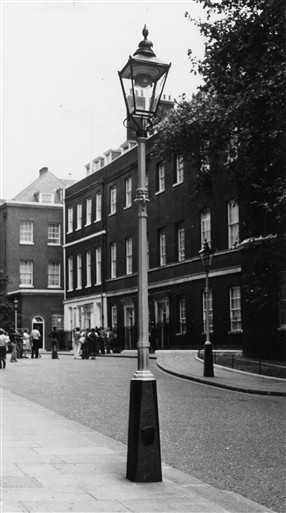
10 Downing Street SW1- Copyright Westminster City Archives
10 Downing Street SW1, official residence of fifty three British Prime Ministers since the eighteenth century and enduring symbol of British political power, survived the Blitz but suffered blast damage in 1940 and 1944. The amalgamation of a mansion house built in 1677 overlooking Horse Guards Parade and a Georgian terraced house facing Downing Street SW1, No 10 was first occupied by a British Prime Minister (Sir Robert Walpole) from 1735.
Following the Munich Crisis of 1938, civil defence precautions were taken in Downing Street to protect Prime Minister Neville Chamberlain and his Cabinet from potential air attack. An air raid shelter was built in the No 10 gardens and construction began on an underground complex beneath the New Public Offices (NPO) at the junction of Horse Guards Road, Great George Street, Birdcage Walk and Storey's Gate. These Cabinet War Rooms (CWR) were supplied with filtered air pumped from the 'Anson' rotunda complex on Monck Street SW1 and protected above ground by pillboxes, sandbags and a concrete apron wall. The complex became operational on 27 August 1939, just before the outbreak of war on 3 September. Barricades, manned by Police, Royal Marines and Guardsmen, were erected at Downing Street's Whitehall entrance.
On 10 May 1940, after Chamberlain’s resignation, Winston Churchill was appointed Prime Minister. Churchill used rooms in Admiralty House on Whitehall until 14 June, after which he and his wife Clementine moved into No 10’s second-floor flat. From here, Churchill dictated correspondence and speeches during the Battle of Britain to a team of dedicated shorthand typists.
With the start of the Blitz on 7 September 1940, government buildings on Whitehall, Parliament Street and the area around Downing Street were soon targeted in air raids, by day and by night. In 1940, the layout of Whitehall differed from the offices of state visible today. The Home Office, India Office, Ministry of Health and New Public Works Offices occupied the site of today's Treasury at 1 Horse Guards Road. The Treasury Buildings were located in and behind today's Cabinet Office at 70 Whitehall. The Colonial Office occupied the site of today's Foreign Office (at the corner with Downing Street).
On 11 September 1940 an unexploded anti-aircraft shell fell on Horse Guards Avenue inflicting several casualties. On 12 September, Horse Guards Avenue and the Ministry of Transport were struck by high explosive bombs. The following day another anti-aircraft shell hit Horse Guards Parade, causing minor damage to No 10's windows and roof. The Scottish Office (Dover House) on Whitehall was damaged on 17 September and small fragments from an anti-aircraft shell penetrated one room in the Downing Street garden air raid shelter. Later that evening, windows in No 10 were broken by a parachute mine explosion across the Thames at County Hall, Lambeth.
Air raid precautions were now tightened in Downing Street. Churchill and his staff varied their daily routines, moving between several venues and making increasing use of the underground Cabinet War Rooms. The Garden Rooms of No 10 (formally downstairs typists' offices) were reinforced with steel and refurbished with a new bedroom, sitting room and dining room. Churchill's Assistant Private Secretary, John 'Jock' Colville - a key eyewitness to life at Downing Street in the Blitz years - described these new quarters as "resembling third-class accommodation on a Channel steamer". Anti-blast shutters were added to every window and most of No 10’s furniture was removed. Only the Garden Rooms, Cabinet Room and Private Secretaries’ office (occupied during 1940-1941 by Churchill’s Private Parliamentary Secretary Brendan Bracken, Assistant Private Secretary Colville and their staffs) were left in use. Winston and Clementine Churchill moved out briefly to the Carlton Hotel, Belgravia, whilst these conversions were made. As Colville further noted in his diary entry for 16 September 1940:
"At No 10 there is a certain chaos caused by the fact that the building is being fitted up for the PM to live and work in, and meanwhile much of the time is being spent in the disagreeable atmosphere of the Central War Room" (Cabinet War Rooms), Sir John Colville, 'The Fringes of Power. Downing Street Diaries 1939-1955', 1985.
Raids over Whitehall intensified. On 21 September over thirty windows in No 10 were shattered by blast from a bomb falling nearby. On the night of 24 September 1940, the Metropolitan Police extinguished an incendiary burning in Downing Street (as noted in a City of Westminster ARP message sent to the Home Office at 11.53pm). On 26 September, a high explosive bomb fell close to the Clive Steps at the western end of King Charles Street, next to the Cabinet War Rooms. Churchill was photographed inspecting the bomb crater the following day. Elsewhere, the War Office was hit twice (on 29 September and 8 October) and the Paymaster General's Office, Whitehall, was severely damaged (also on 8 October 1940). One corner of the Home Office received a direct hit. On 10 October, two unexploded bombs lying on Horse Guards Parade raised concerns for Churchill's personal safety before they were defused. The War Office was struck again on 12 October.
Two days later, the Blitz moved even closer to the heart of British government.
On the evening of 14 October 1940, Winston and Clementine Churchill were being served dinner in the Garden Rooms, when several heavy detonations were heard close by. Churchill ordered his butler and parlour maid into the garden shelter and returned to his dinner table. Several minutes later a high explosive bomb hit the Treasury Gardens, yards from No 10. Three civil servants on Home Guard duty in the Treasury Green shelter were killed and Treasury Building offices were destroyed. The blast rocked Downing Street. Although the Churchills were unharmed, No 10’s upstairs kitchen and pantry were wrecked, a large plate glass window was shattered and the State Drawing Rooms, Pillared Drawing Room and Soane Dining Rooms were damaged.
After the 14 October incident, a full review of the Prime Minister's security took place. A new VIP concrete underground shelter (accommodating six people) was built directly under No 10. During the Blitz this was used by Churchill and his dinner guests - including King George VI - if the air raid sirens sounded.
The immediate area around Downing Street continued to suffer. On 16 October 1940 a bomb fell in the gardens of Dover House (the Scottish Office), causing additional local blast damage, including to a typist's bedroom in No 10. In the late evening of 17 October bombs were again dropped directly on the Treasury Buildings (killing two), outside the Home and Colonial Offices and close to the Horse Guards Building and Downing Street garden air raid shelter. As Colville noted in his diary:
"Slept at No 10...in the PM's dining-room till bed time. I had not fallen asleep before the crash of a falling bomb dragged us all from our beds. The air was thick with smoke and the choking smell of sulphur and gunpowder.....Four members of the Home Guard were trapped - and I fear killed - beneath the debris...Our shelter at No 10 - on the site of the old seventeenth-century Cockpit - is only about forty yards away from where the bomb hit....I followed the demolition squad and ARP men along an underground passage beneath the ruins (of the Treasury), but we could get no reply to knocks and calls from the room in which the men had been caught. This is the second hit within four days in almost the same place". (Sir John Colville, diary entry 18 October 1940, 'The Fringes of Power. Downing Street Diaries 1939-1955', 1985).
The high explosive bomb which hit the Colonial Office also blemished the Portland Stone façade of the Cenotaph (Parliament Street) and ruptured local coal gas and water mains. On 18 October, an unexploded parachute mine lying in St James's Park was sealed off and defused. On 19 October, high explosive bombs hit Horse Guards Parade and incendiaries fell on the Treasury and Foreign Office. By February 1941, it was estimated that 140 bombs of varying types had fallen (exploded or unexploded) in the general Whitehall area.
In response to this increased threat level, the Prime Minister and his wife moved into a purpose-built flat in the reinforced No 10 Annexe, another former typing pool situated directly above the Cabinet War Rooms on the ground floor of the New Public Offices (the first floor of today's Treasury). The removals process from No 10 lasted from 20 October until December 1940. Churchill now spent the daylight hours either in No 10 or in the Annexe, using his underground bedroom in the Cabinet War Rooms during the heaviest raids.
Several secretaries recalled Churchill's routines in the Garden Rooms and the Annexe, including his penchant for dictating letters in bed into the early hours, in a cloud of cigar smoke, whilst his pet budgerigar fluttered freely above him. He regularly observed air raids at night from the Annexe (today's Treasury) roof and was once protected from flying shrapnel by his police bodyguard, Detective Inspector Walter Thompson, whilst standing at the building's entrance. At other times Churchill held meetings and stayed overnight in the disused Down Street Underground Station in Mayfair. From September 1944 to March 1945, as V2 rockets landed across London, Churchill was obliged to hold his War Cabinet meetings almost exclusively in the Cabinet War Rooms.
Damage to No 10 was a talking point among visitors. Invited to lunch with Churchill on 6 November 1942, the MP and diarist Harold Nicolson recorded that:
“I go downstairs to the basement where the Churchills are living, since the upper floors have been knocked about”: (Diaries and Letters 1939-45, Sir Harold Nicolson, 1967).
During the ‘Little Blitz’ of January to April 1944, Downing Street was directly affected again. On the night of 20 February 1944, two bombs struck Horse Guards Parade (others fell in St James’s Park and close to the Treasury), killing five, pockmarking the Guards' memorial, breaking windows and interior fittings in No 10 and causing minor damage along Downing Street. As Colville noted:
"No 10 was superficially damaged: all the windows were blown in and large pieces of plaster came down from the ceilings in the drawing rooms, leaving gaping holes. Downing Street is carpeted with glass, a bomb at the corner of the Treasury (which killed several people in Whitehall) burst a large water main, and generally speaking the atmosphere is quite 1940-like" (Sir John Colville, Diary entry 20 February 1944, 'The Fringes of Power. Downing Street Diaries 1939-1955', 1985).
Field Marshal Alanbrooke (Chief of the Imperial General Staff and Churchill's pivotal military aide during the war) also described the aftermath:
'Returned to London to find considerable damage done by bombs during previous night. One bomb (in) middle of Whitehall opposite Treasury had done much harm and blown in all windows of War Office except mine ! Two bombs in middle of Horse Guards had blown in all 10 Downing Street, Admiralty, Horse Guards windows etc. Guards Memorial badly chipped by bomb' (Field Marshal Lord Alanbrooke, diary entry 21 February 1944, War Diaries, 1939-1945, 1957.
Downing Street was promptly festooned with repair ladders and by the next day all the broken windows in No 10 had been boarded up.
Remainder of article: http://www.westendatwar.org.uk/page/1...
Sources: West End at War, Westminster Archives
14 October 1940
By Ronan Thomas

10 Downing Street SW1- Copyright Westminster City Archives
10 Downing Street SW1, official residence of fifty three British Prime Ministers since the eighteenth century and enduring symbol of British political power, survived the Blitz but suffered blast damage in 1940 and 1944. The amalgamation of a mansion house built in 1677 overlooking Horse Guards Parade and a Georgian terraced house facing Downing Street SW1, No 10 was first occupied by a British Prime Minister (Sir Robert Walpole) from 1735.
Following the Munich Crisis of 1938, civil defence precautions were taken in Downing Street to protect Prime Minister Neville Chamberlain and his Cabinet from potential air attack. An air raid shelter was built in the No 10 gardens and construction began on an underground complex beneath the New Public Offices (NPO) at the junction of Horse Guards Road, Great George Street, Birdcage Walk and Storey's Gate. These Cabinet War Rooms (CWR) were supplied with filtered air pumped from the 'Anson' rotunda complex on Monck Street SW1 and protected above ground by pillboxes, sandbags and a concrete apron wall. The complex became operational on 27 August 1939, just before the outbreak of war on 3 September. Barricades, manned by Police, Royal Marines and Guardsmen, were erected at Downing Street's Whitehall entrance.
On 10 May 1940, after Chamberlain’s resignation, Winston Churchill was appointed Prime Minister. Churchill used rooms in Admiralty House on Whitehall until 14 June, after which he and his wife Clementine moved into No 10’s second-floor flat. From here, Churchill dictated correspondence and speeches during the Battle of Britain to a team of dedicated shorthand typists.
With the start of the Blitz on 7 September 1940, government buildings on Whitehall, Parliament Street and the area around Downing Street were soon targeted in air raids, by day and by night. In 1940, the layout of Whitehall differed from the offices of state visible today. The Home Office, India Office, Ministry of Health and New Public Works Offices occupied the site of today's Treasury at 1 Horse Guards Road. The Treasury Buildings were located in and behind today's Cabinet Office at 70 Whitehall. The Colonial Office occupied the site of today's Foreign Office (at the corner with Downing Street).
On 11 September 1940 an unexploded anti-aircraft shell fell on Horse Guards Avenue inflicting several casualties. On 12 September, Horse Guards Avenue and the Ministry of Transport were struck by high explosive bombs. The following day another anti-aircraft shell hit Horse Guards Parade, causing minor damage to No 10's windows and roof. The Scottish Office (Dover House) on Whitehall was damaged on 17 September and small fragments from an anti-aircraft shell penetrated one room in the Downing Street garden air raid shelter. Later that evening, windows in No 10 were broken by a parachute mine explosion across the Thames at County Hall, Lambeth.
Air raid precautions were now tightened in Downing Street. Churchill and his staff varied their daily routines, moving between several venues and making increasing use of the underground Cabinet War Rooms. The Garden Rooms of No 10 (formally downstairs typists' offices) were reinforced with steel and refurbished with a new bedroom, sitting room and dining room. Churchill's Assistant Private Secretary, John 'Jock' Colville - a key eyewitness to life at Downing Street in the Blitz years - described these new quarters as "resembling third-class accommodation on a Channel steamer". Anti-blast shutters were added to every window and most of No 10’s furniture was removed. Only the Garden Rooms, Cabinet Room and Private Secretaries’ office (occupied during 1940-1941 by Churchill’s Private Parliamentary Secretary Brendan Bracken, Assistant Private Secretary Colville and their staffs) were left in use. Winston and Clementine Churchill moved out briefly to the Carlton Hotel, Belgravia, whilst these conversions were made. As Colville further noted in his diary entry for 16 September 1940:
"At No 10 there is a certain chaos caused by the fact that the building is being fitted up for the PM to live and work in, and meanwhile much of the time is being spent in the disagreeable atmosphere of the Central War Room" (Cabinet War Rooms), Sir John Colville, 'The Fringes of Power. Downing Street Diaries 1939-1955', 1985.
Raids over Whitehall intensified. On 21 September over thirty windows in No 10 were shattered by blast from a bomb falling nearby. On the night of 24 September 1940, the Metropolitan Police extinguished an incendiary burning in Downing Street (as noted in a City of Westminster ARP message sent to the Home Office at 11.53pm). On 26 September, a high explosive bomb fell close to the Clive Steps at the western end of King Charles Street, next to the Cabinet War Rooms. Churchill was photographed inspecting the bomb crater the following day. Elsewhere, the War Office was hit twice (on 29 September and 8 October) and the Paymaster General's Office, Whitehall, was severely damaged (also on 8 October 1940). One corner of the Home Office received a direct hit. On 10 October, two unexploded bombs lying on Horse Guards Parade raised concerns for Churchill's personal safety before they were defused. The War Office was struck again on 12 October.
Two days later, the Blitz moved even closer to the heart of British government.
On the evening of 14 October 1940, Winston and Clementine Churchill were being served dinner in the Garden Rooms, when several heavy detonations were heard close by. Churchill ordered his butler and parlour maid into the garden shelter and returned to his dinner table. Several minutes later a high explosive bomb hit the Treasury Gardens, yards from No 10. Three civil servants on Home Guard duty in the Treasury Green shelter were killed and Treasury Building offices were destroyed. The blast rocked Downing Street. Although the Churchills were unharmed, No 10’s upstairs kitchen and pantry were wrecked, a large plate glass window was shattered and the State Drawing Rooms, Pillared Drawing Room and Soane Dining Rooms were damaged.
After the 14 October incident, a full review of the Prime Minister's security took place. A new VIP concrete underground shelter (accommodating six people) was built directly under No 10. During the Blitz this was used by Churchill and his dinner guests - including King George VI - if the air raid sirens sounded.
The immediate area around Downing Street continued to suffer. On 16 October 1940 a bomb fell in the gardens of Dover House (the Scottish Office), causing additional local blast damage, including to a typist's bedroom in No 10. In the late evening of 17 October bombs were again dropped directly on the Treasury Buildings (killing two), outside the Home and Colonial Offices and close to the Horse Guards Building and Downing Street garden air raid shelter. As Colville noted in his diary:
"Slept at No 10...in the PM's dining-room till bed time. I had not fallen asleep before the crash of a falling bomb dragged us all from our beds. The air was thick with smoke and the choking smell of sulphur and gunpowder.....Four members of the Home Guard were trapped - and I fear killed - beneath the debris...Our shelter at No 10 - on the site of the old seventeenth-century Cockpit - is only about forty yards away from where the bomb hit....I followed the demolition squad and ARP men along an underground passage beneath the ruins (of the Treasury), but we could get no reply to knocks and calls from the room in which the men had been caught. This is the second hit within four days in almost the same place". (Sir John Colville, diary entry 18 October 1940, 'The Fringes of Power. Downing Street Diaries 1939-1955', 1985).
The high explosive bomb which hit the Colonial Office also blemished the Portland Stone façade of the Cenotaph (Parliament Street) and ruptured local coal gas and water mains. On 18 October, an unexploded parachute mine lying in St James's Park was sealed off and defused. On 19 October, high explosive bombs hit Horse Guards Parade and incendiaries fell on the Treasury and Foreign Office. By February 1941, it was estimated that 140 bombs of varying types had fallen (exploded or unexploded) in the general Whitehall area.
In response to this increased threat level, the Prime Minister and his wife moved into a purpose-built flat in the reinforced No 10 Annexe, another former typing pool situated directly above the Cabinet War Rooms on the ground floor of the New Public Offices (the first floor of today's Treasury). The removals process from No 10 lasted from 20 October until December 1940. Churchill now spent the daylight hours either in No 10 or in the Annexe, using his underground bedroom in the Cabinet War Rooms during the heaviest raids.
Several secretaries recalled Churchill's routines in the Garden Rooms and the Annexe, including his penchant for dictating letters in bed into the early hours, in a cloud of cigar smoke, whilst his pet budgerigar fluttered freely above him. He regularly observed air raids at night from the Annexe (today's Treasury) roof and was once protected from flying shrapnel by his police bodyguard, Detective Inspector Walter Thompson, whilst standing at the building's entrance. At other times Churchill held meetings and stayed overnight in the disused Down Street Underground Station in Mayfair. From September 1944 to March 1945, as V2 rockets landed across London, Churchill was obliged to hold his War Cabinet meetings almost exclusively in the Cabinet War Rooms.
Damage to No 10 was a talking point among visitors. Invited to lunch with Churchill on 6 November 1942, the MP and diarist Harold Nicolson recorded that:
“I go downstairs to the basement where the Churchills are living, since the upper floors have been knocked about”: (Diaries and Letters 1939-45, Sir Harold Nicolson, 1967).
During the ‘Little Blitz’ of January to April 1944, Downing Street was directly affected again. On the night of 20 February 1944, two bombs struck Horse Guards Parade (others fell in St James’s Park and close to the Treasury), killing five, pockmarking the Guards' memorial, breaking windows and interior fittings in No 10 and causing minor damage along Downing Street. As Colville noted:
"No 10 was superficially damaged: all the windows were blown in and large pieces of plaster came down from the ceilings in the drawing rooms, leaving gaping holes. Downing Street is carpeted with glass, a bomb at the corner of the Treasury (which killed several people in Whitehall) burst a large water main, and generally speaking the atmosphere is quite 1940-like" (Sir John Colville, Diary entry 20 February 1944, 'The Fringes of Power. Downing Street Diaries 1939-1955', 1985).
Field Marshal Alanbrooke (Chief of the Imperial General Staff and Churchill's pivotal military aide during the war) also described the aftermath:
'Returned to London to find considerable damage done by bombs during previous night. One bomb (in) middle of Whitehall opposite Treasury had done much harm and blown in all windows of War Office except mine ! Two bombs in middle of Horse Guards had blown in all 10 Downing Street, Admiralty, Horse Guards windows etc. Guards Memorial badly chipped by bomb' (Field Marshal Lord Alanbrooke, diary entry 21 February 1944, War Diaries, 1939-1945, 1957.
Downing Street was promptly festooned with repair ladders and by the next day all the broken windows in No 10 had been boarded up.
Remainder of article: http://www.westendatwar.org.uk/page/1...
Sources: West End at War, Westminster Archives
message 347:
by
Bentley, Group Founder, Leader, Chief
(last edited Sep 06, 2020 03:14AM)
(new)
-
rated it 4 stars
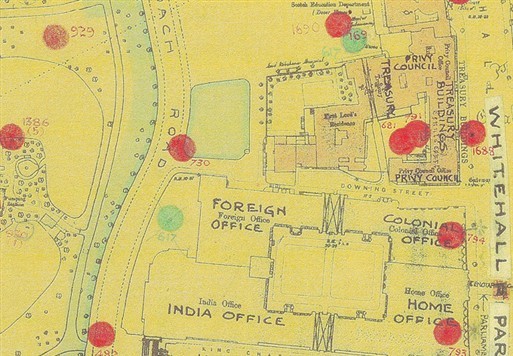
Bomb Map: Downing Street, Foreign Office and St James's Park SW1 - Copyright Westminster City Archives
message 349:
by
Bentley, Group Founder, Leader, Chief
(last edited Sep 06, 2020 08:25AM)
(new)
-
rated it 4 stars
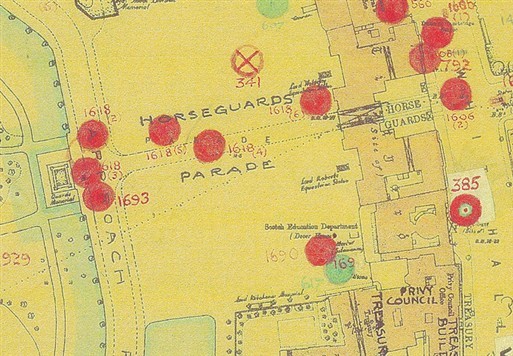
Bomb Map: Horse Guards Parade - Copyright Westminster City Archives
Question: Why were the Nazis bombing Horse Guards Parade? Here is some info on Horse Guards Parade. It apparently is used by senior officials when not otherwise occupied and that must be why they were bombing that location. Link: https://en.wikipedia.org/wiki/Horse_G...
Source: Wikipedia
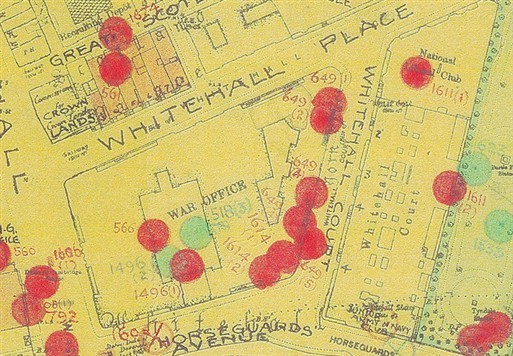
Bomb Map: Whitehall Place and War Office - Copyright Westminster City Archives
Question: How did the Nazis know exactly where Churchill was? Did you ever wonder why Churchill went to the same places all of the time? Wouldn't it have been safer to modify his locations frequently? Don't you think by this Bomb Map that they were trying to wipe out Churchill and his war cabinet?
Books mentioned in this topic
Franklin Delano Roosevelt: Champion of Freedom (other topics)The Patriarch: The Remarkable Life and Turbulent Times of Joseph P. Kennedy (other topics)
The Kennedys Amidst the Gathering Storm: A Thousand Days in London, 1938-1940 (other topics)
Dunkirk Lib/E: The History Behind the Major Motion Picture (other topics)
America's Global Role: Essays and Reviews on National Security, Geopolitics, and War (other topics)
More...
Authors mentioned in this topic
Conrad Black (other topics)David Nasaw (other topics)
Will Swift (other topics)
Joshua Levine (other topics)
Francis Sempa (other topics)
More...



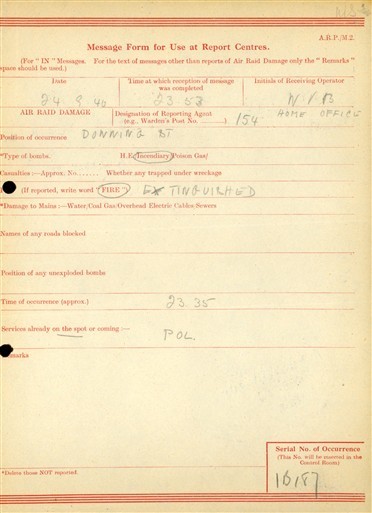
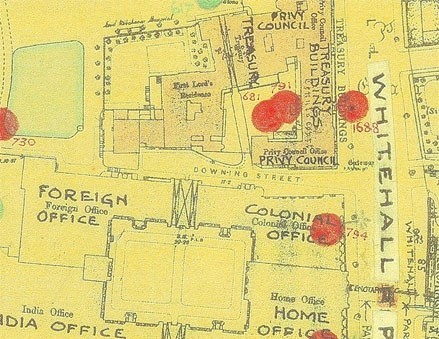


That France alone should lie prostrate at this moment, is the crime, not of a great and noble nation, but of what are called “the men of Vichy.” We have profound sympathy with t..."
So Churchill makes the presentation that this is different than WWI as it was - further different in that no only were full societies involved but also that this time violence fell onto British soil.
I note that of course thought both WWI and WWII the Americans never had an attack or an invasion nor an occupation by foreign troops (remember Hawaii was not yet a state) -
I think that directs to some extend the opinions and attitudes of both Europeans and Americans.